Downing Street has poured cold water on the prospect of any relaxation of social distancing measures this week, insisting 7 May remains the date for a review of the lockdown.
Boris Johnson’s promise yesterday that he would set out his thinking on “refining” economic and social restrictions “in the coming days” raised hopes of a step back towards normal life by the end of the week.
But his official spokesman today told reporters that there was no question of lifting restrictions before meeting the government’s five tests – the NHS being able to cope; a sustained fall in deaths; a drop in infections to manageable levels; sufficient testing capacity and protective equipment; and no risk of a second peak.
Download the new Independent Premium app
Sharing the full story, not just the headlines
And he added: “I don’t think we are suggesting for a moment that the five tests are met.”
The government’s Scientific Advisory Group on Emergencies (Sage) is meeting today to consider progress in the battle against coronavirus, with a further meeting ahead of cabinet on Thursday.
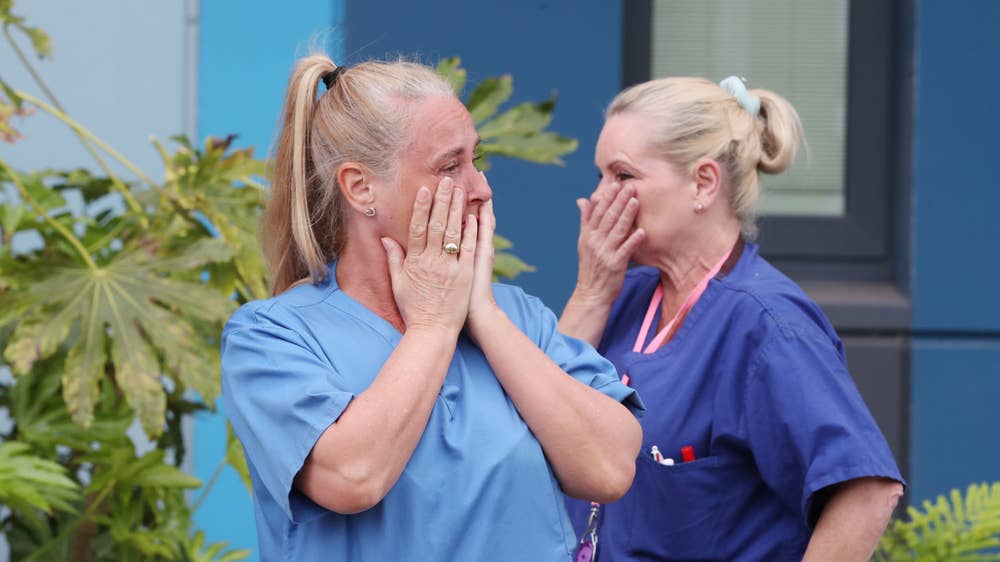
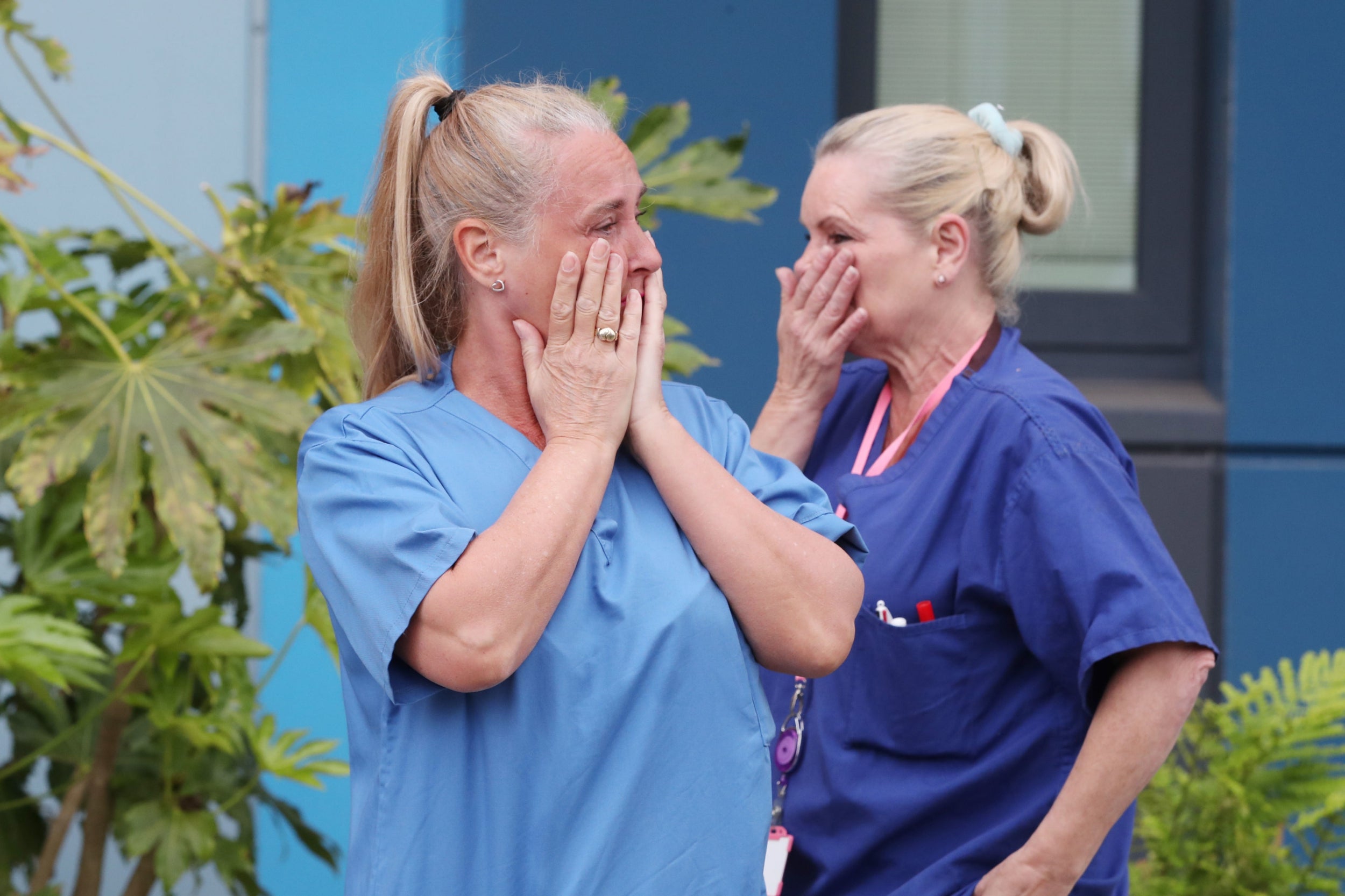
1/30
Staff react outside Salford Royal Hospital in Manchester during a minute’s silence to pay tribute to the NHS staff and key workers who have died during the coronavirus outbreak
PA
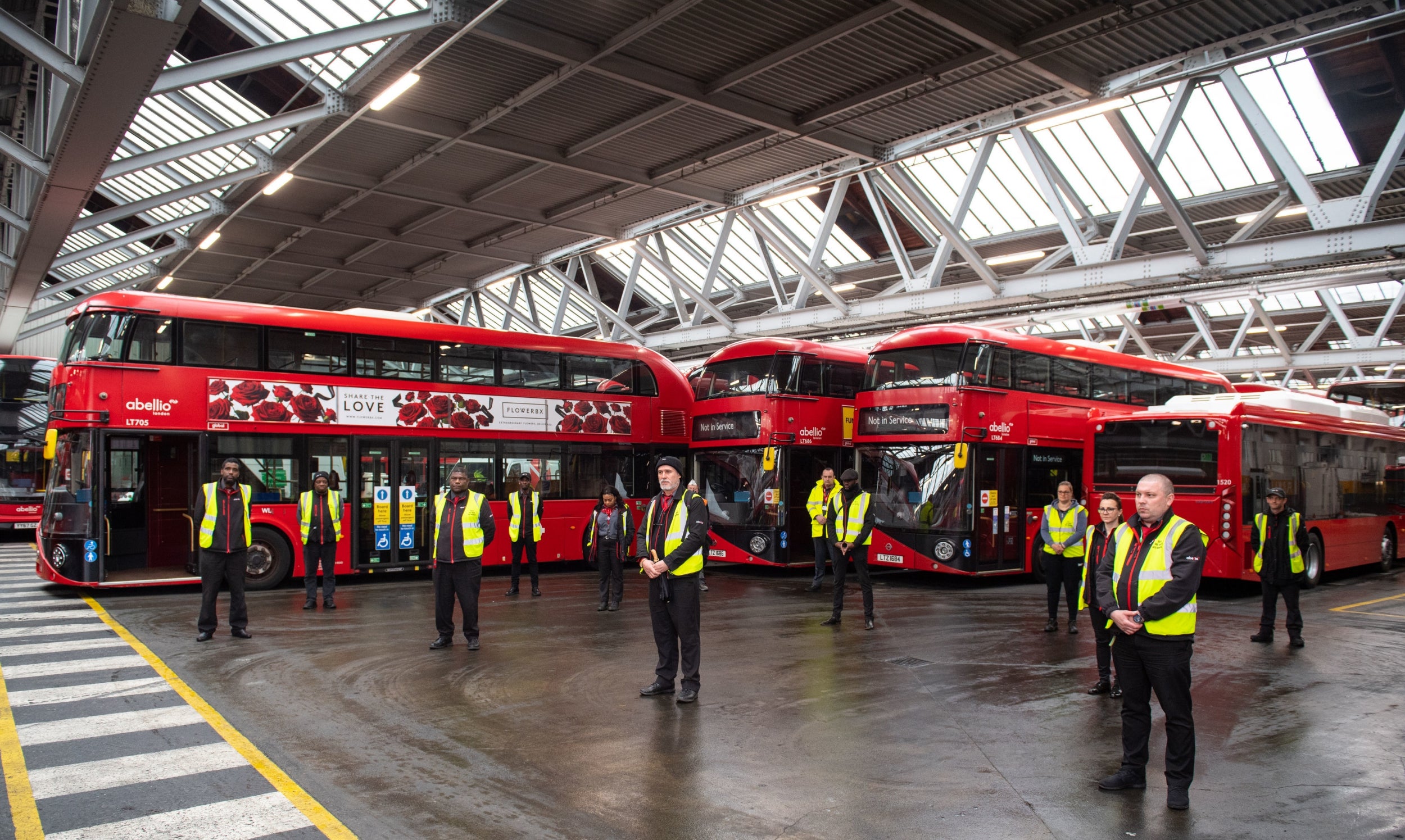
2/30
Staff inside Camberwell bus depot in London, during a minute’s silence
PA
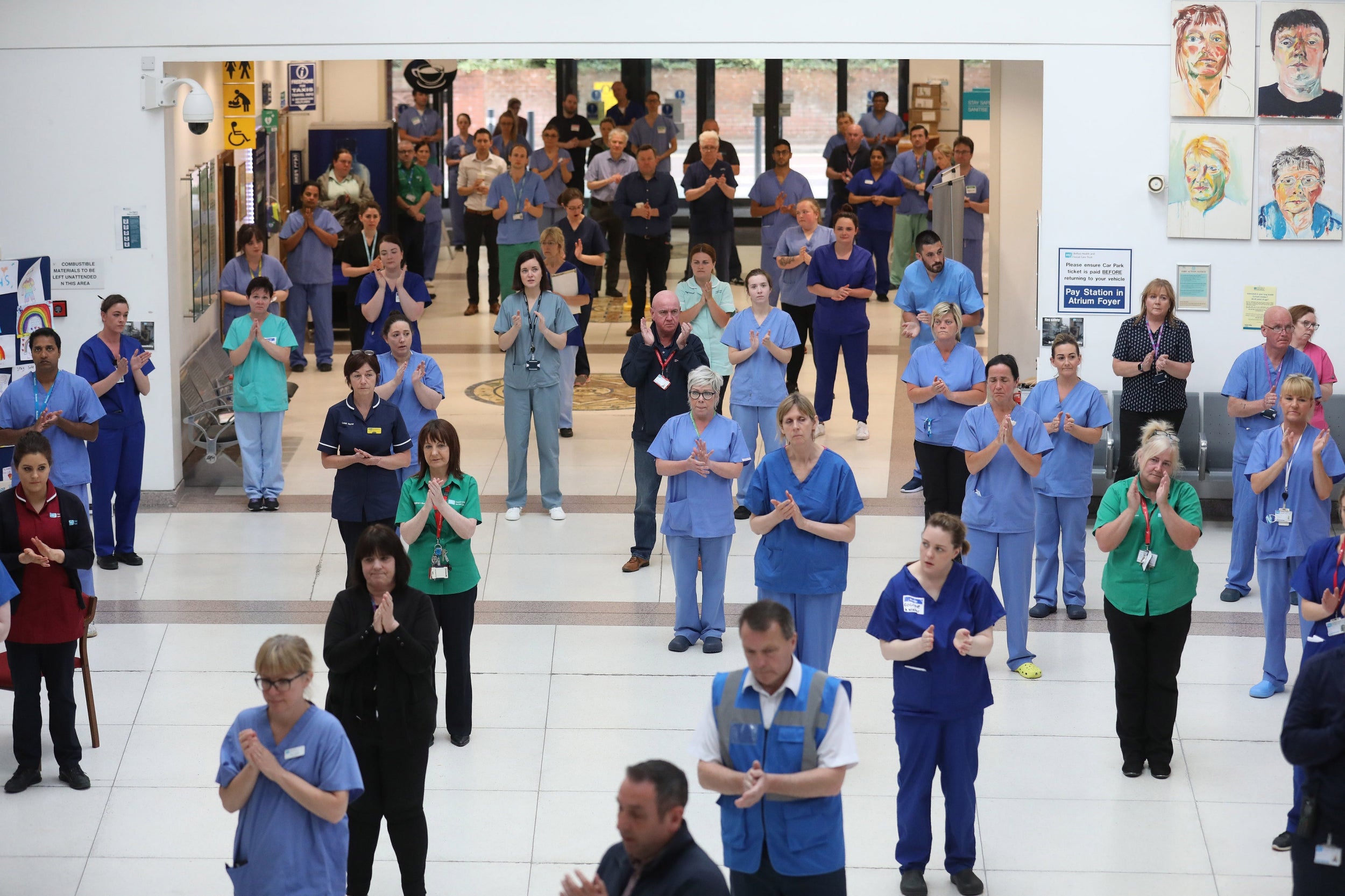
3/30
NHS staff at the Mater hospital in Belfast, during a minute’s silence to pay tribute to the NHS staff and key workers who have died during the coronavirus outbreak.
PA
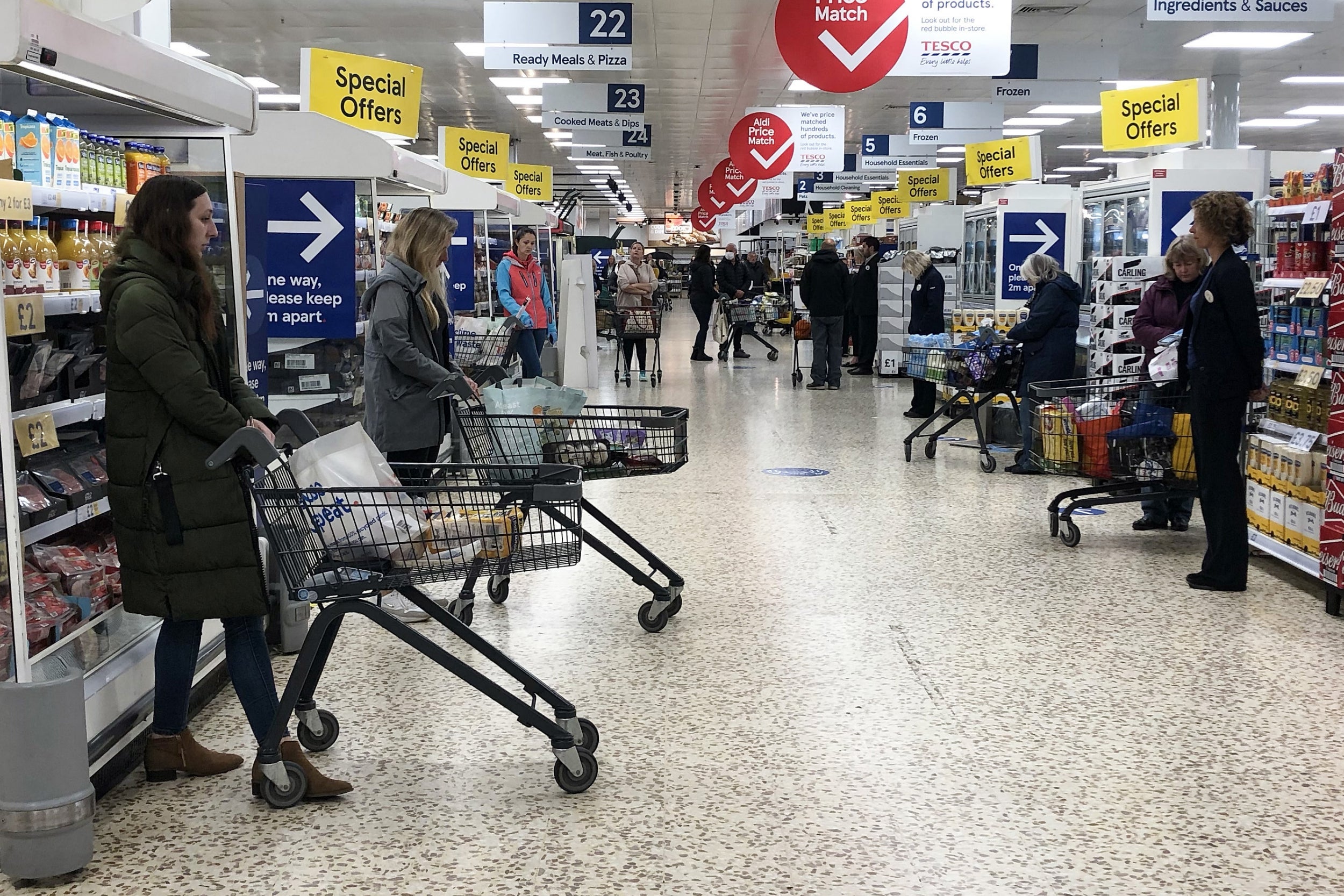
4/30
Shoppers observe a minute’s silence in Tescos in Shoreham
Getty
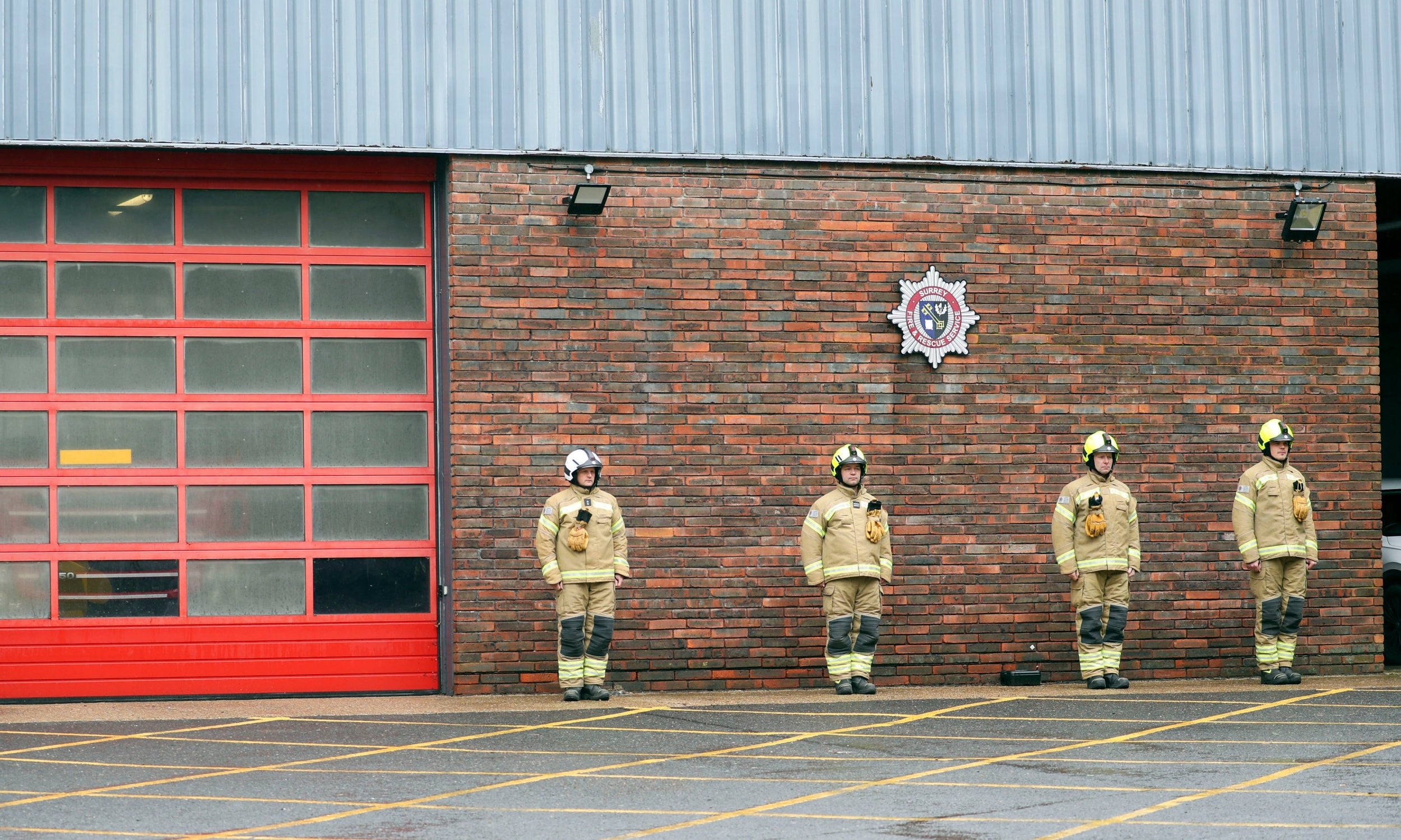
5/30
Firefighters outside Godstone fire station
PA
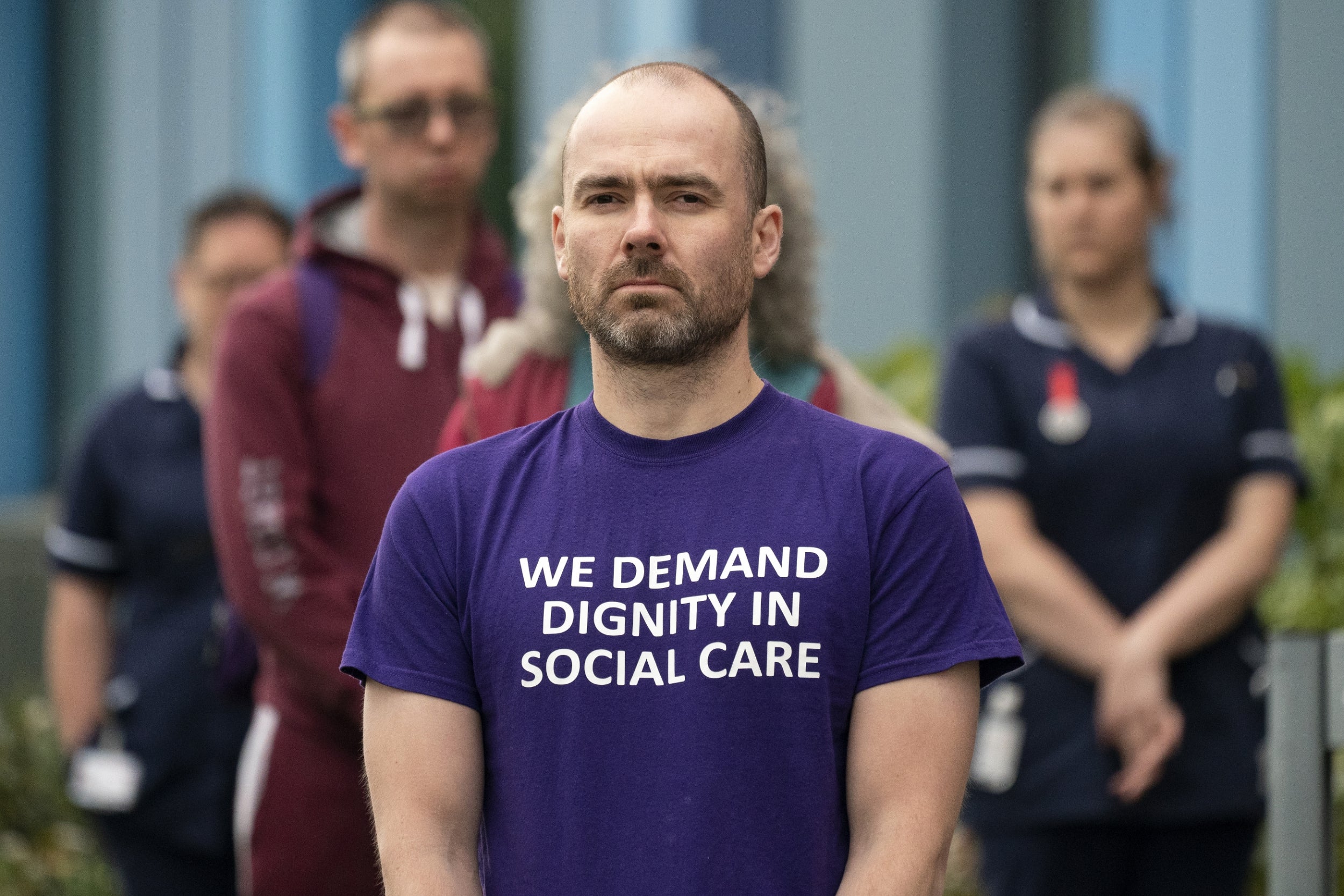
6/30 Salford Royal Hospital
Getty
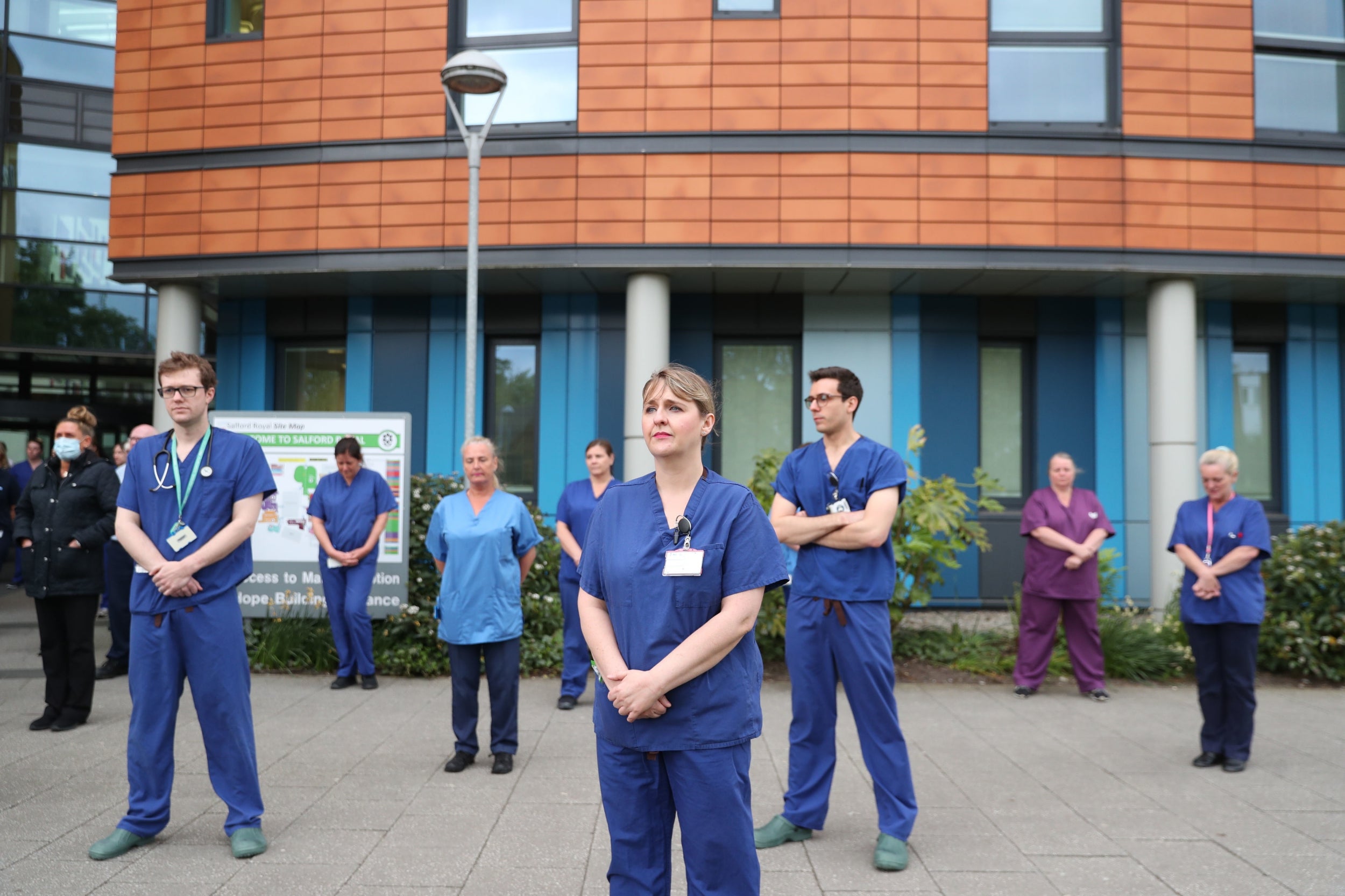
7/30 Salford Royal Hospital
PA
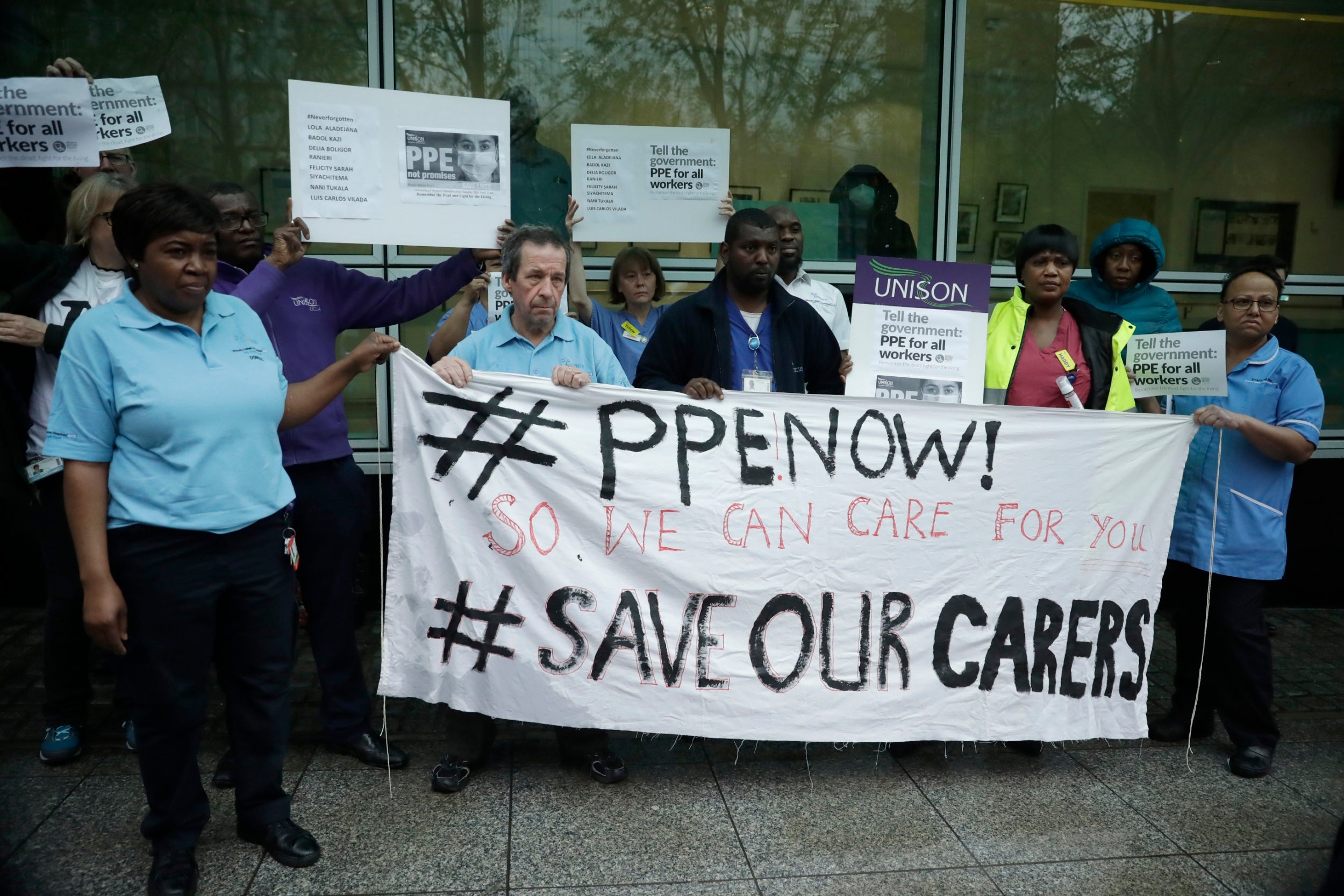
8/30
Hospital workers take part in a protest calling on the British government to provide PPE across Britain for all workers in care, the NHS and other vital public services after a nationwide minute’s silence at University College Hospital in London
AP
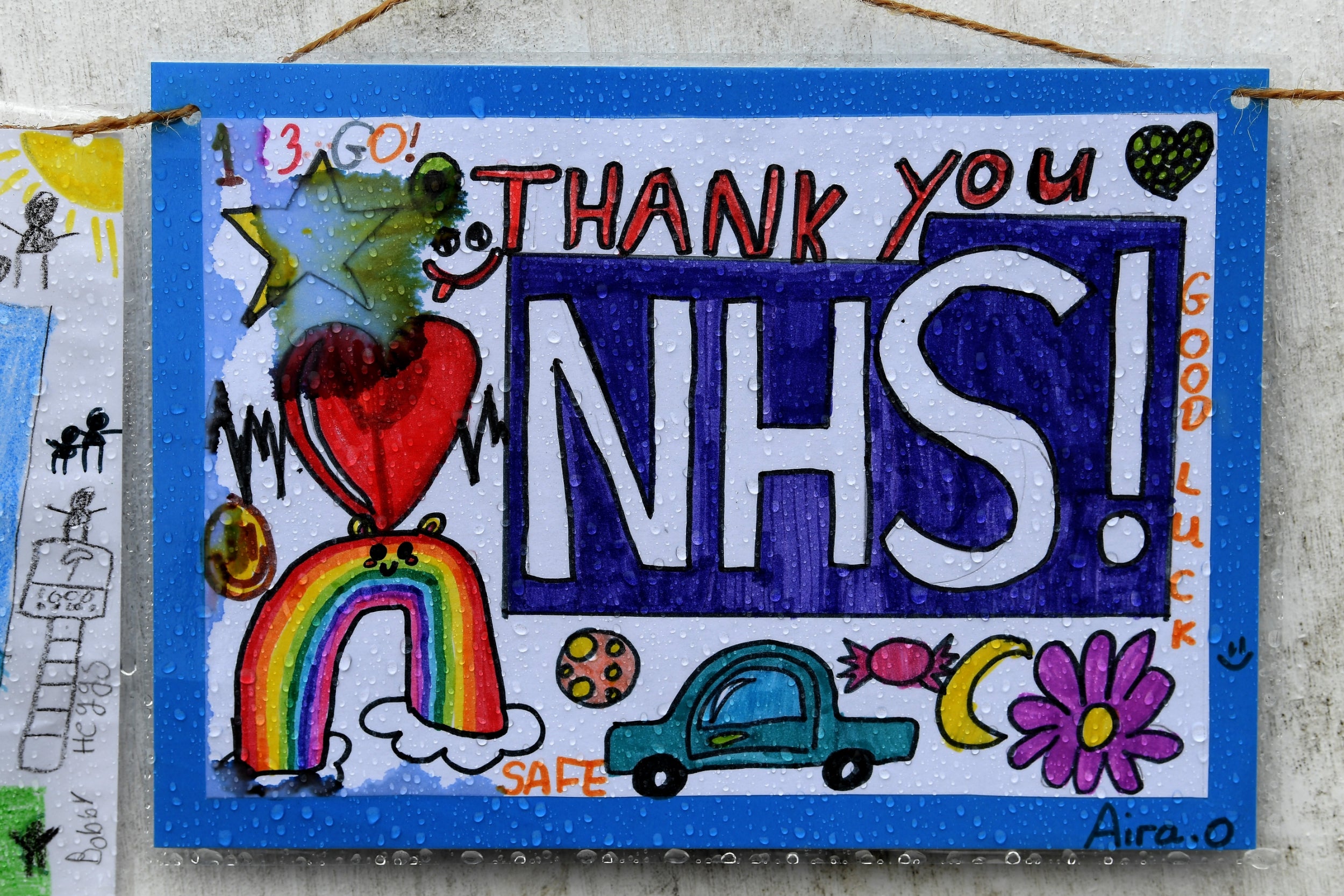
9/30
A school children’s poster hanging outside Glenfield Hospital during a minute’s silence
Getty
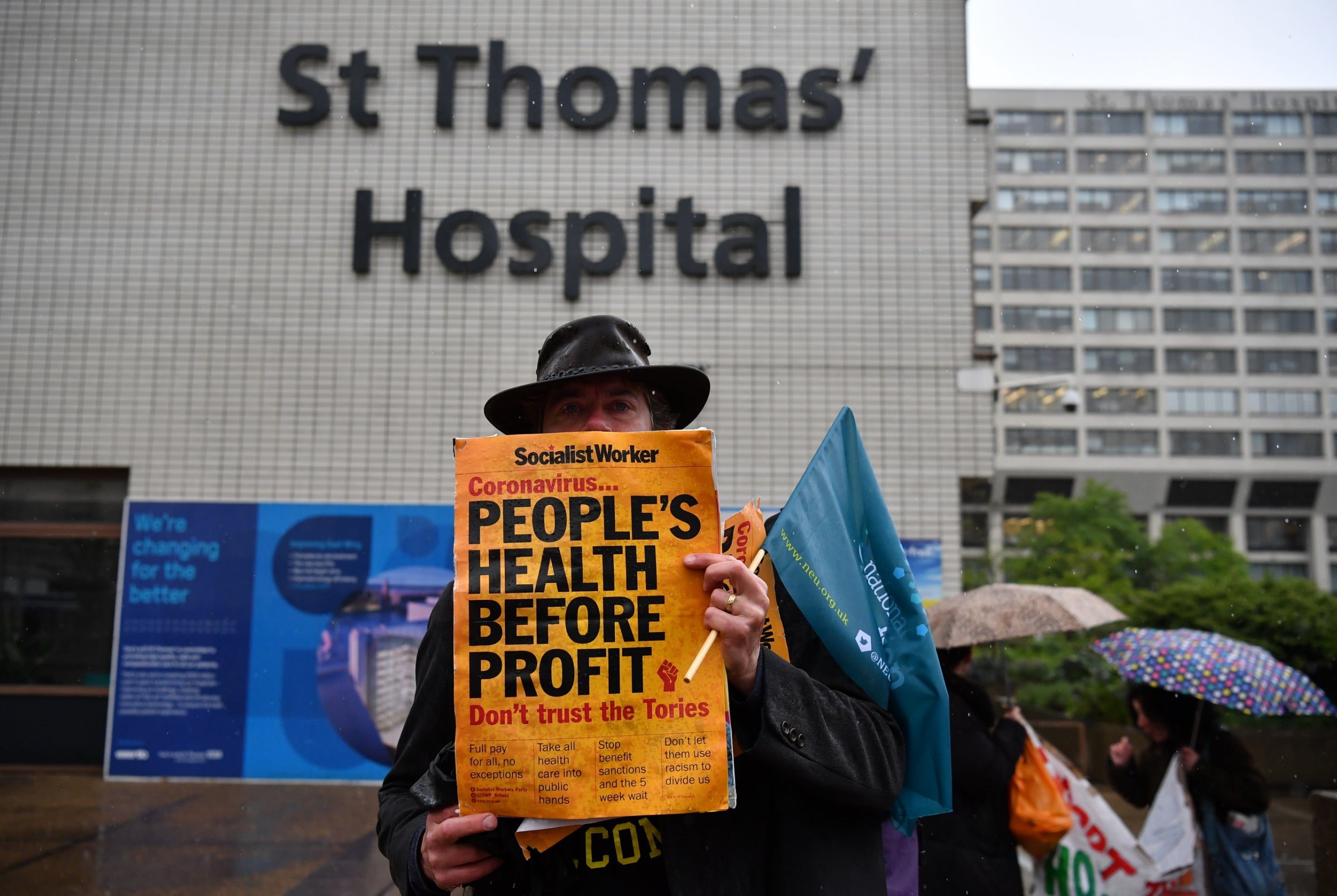
10/30
A man holds a placard that reads “People’s health before profit” outside St Thomas hospital
Getty
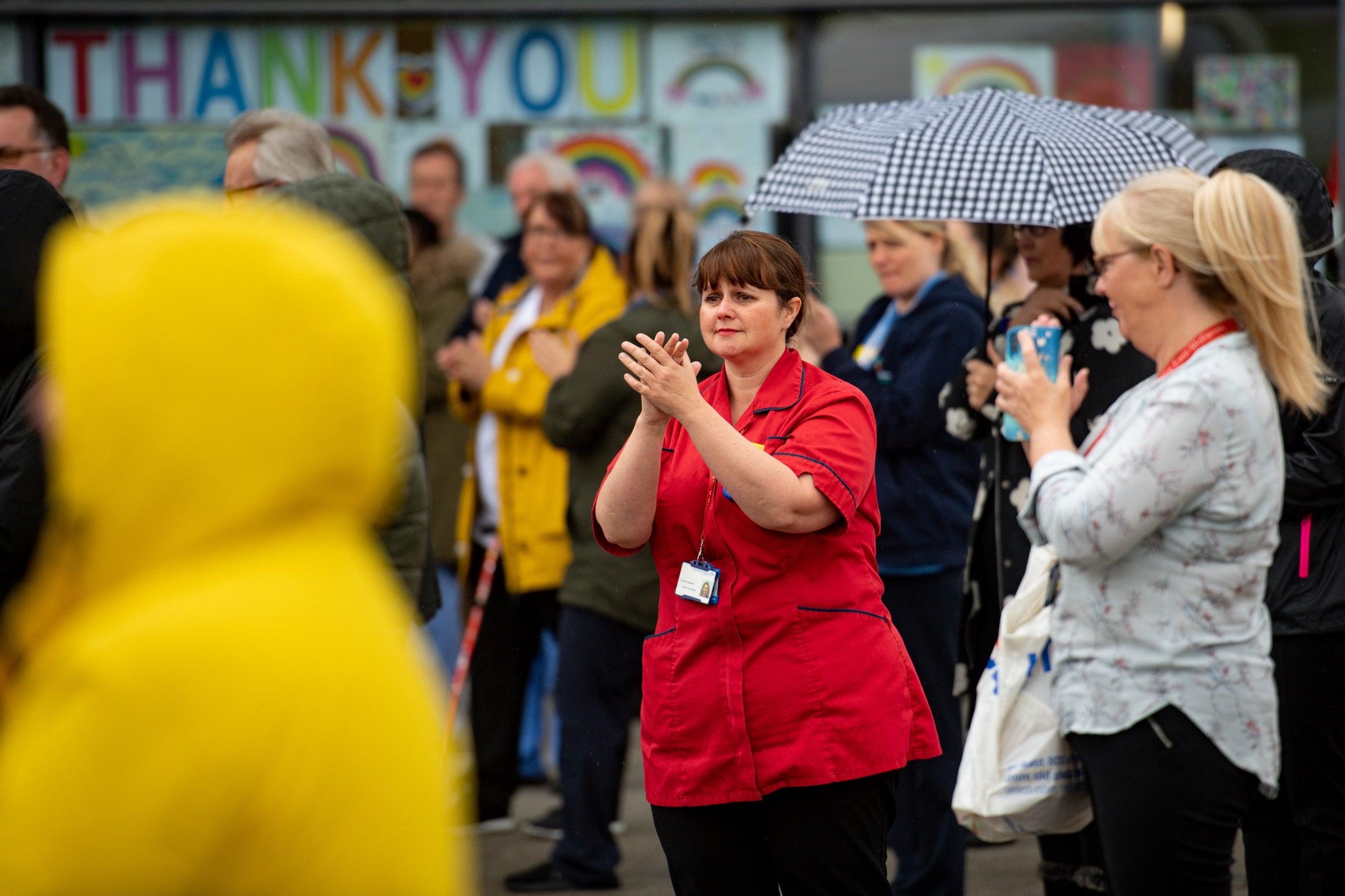
11/30
Staff members applaud outside the Royal Derby Hospital, following a minute’s silence
PA
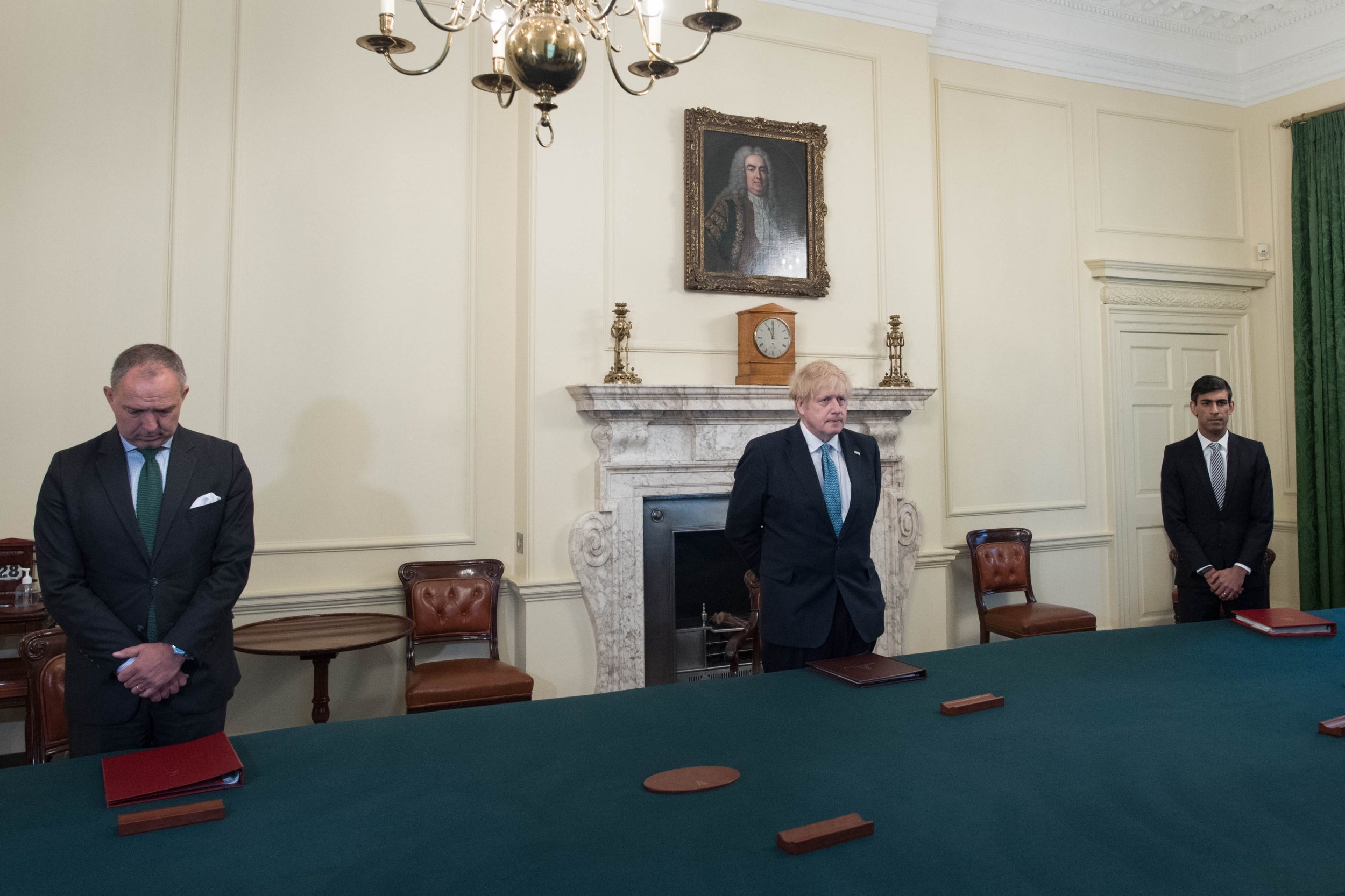
12/30
Cabinet Secretary Mark Sedwill, Prime minister Boris Johnson and Chancellor of the Exchequer Rishi Sunak, stand inside 10 Downing Street, London, to observe a minutes silence in tribute to the NHS staff and key workers who have died during the coronavirus outbreak
PA
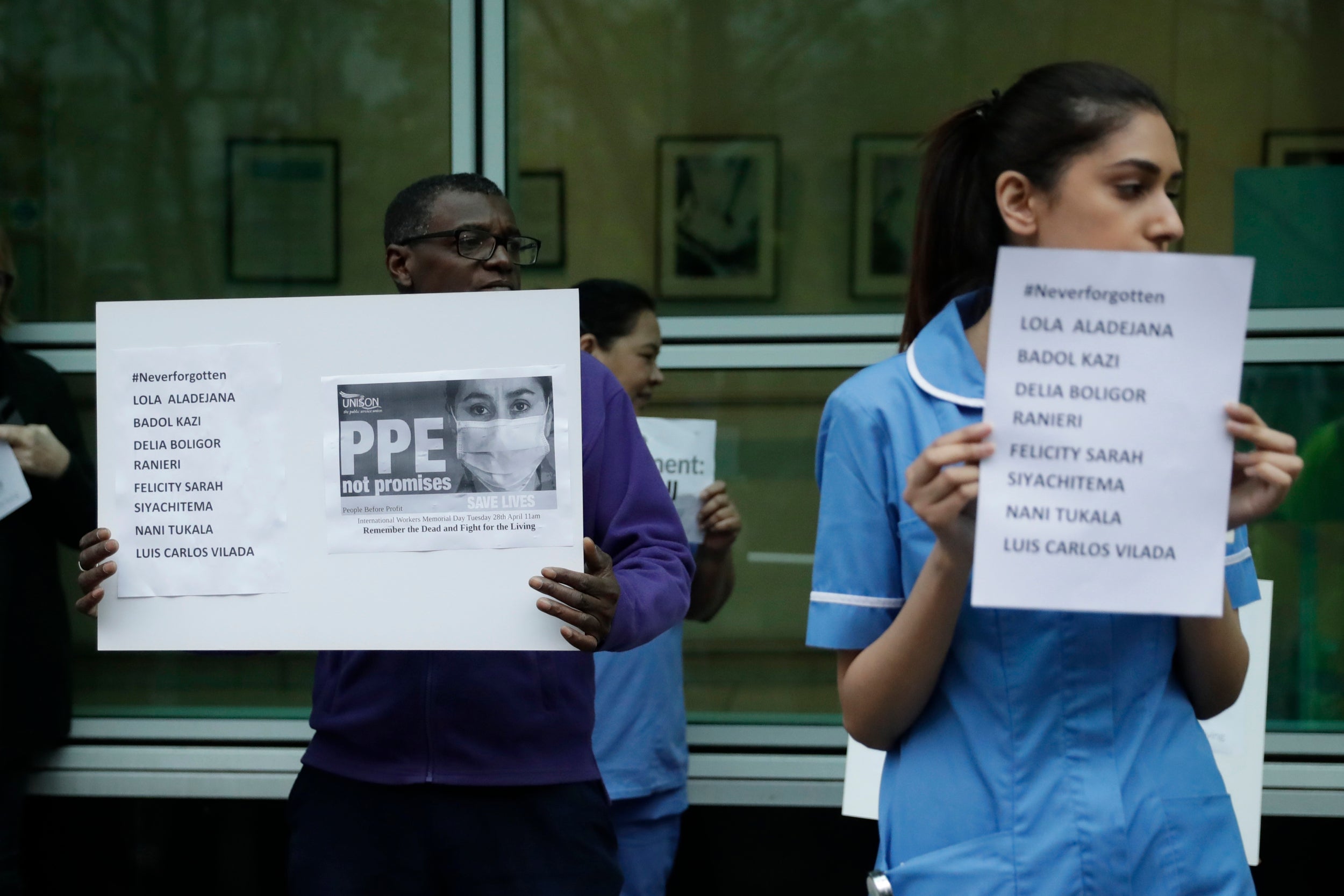
13/30 University College Hospital, London
Hospital workers hold placards with the names of their colleagues who have died from coronavirus as they take part in a protest calling on the British government to provide PPE
AP
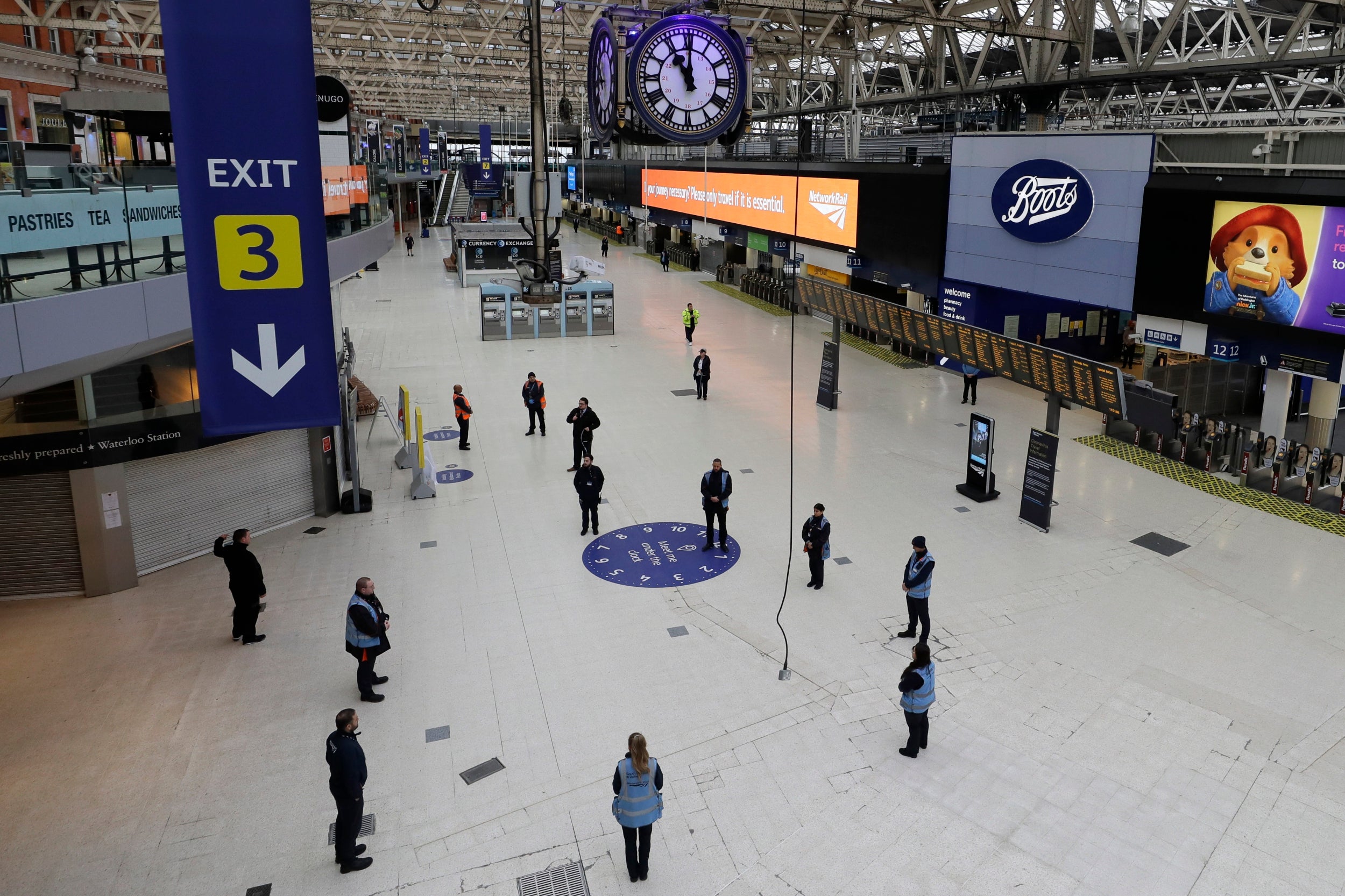
14/30
Staff at Waterloo Station in London, stand to observe a minute’s silence, to pay tribute to NHS and key workers who have died with coronavirus
AP
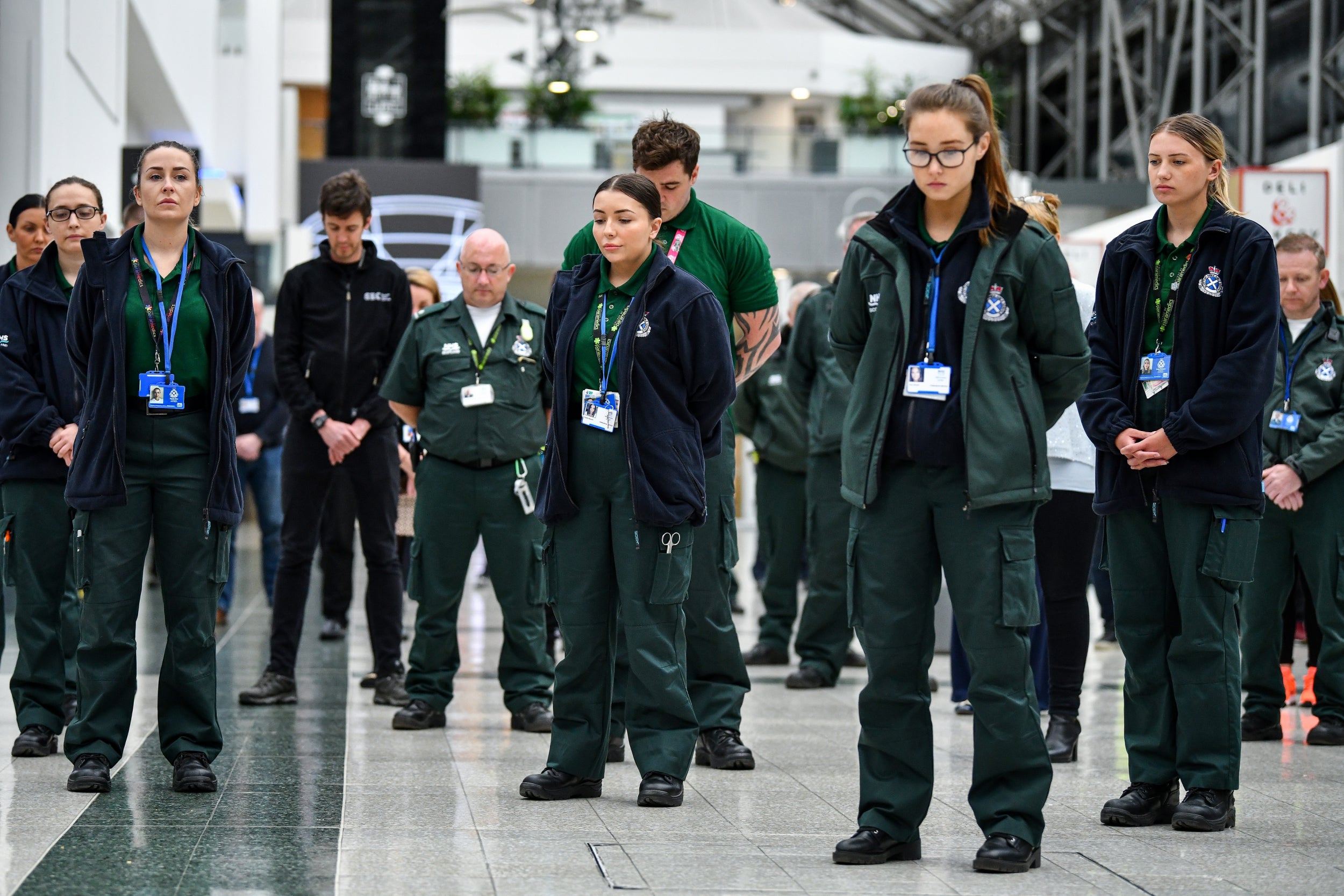
15/30
Medical staff at the Louisa Jordan hospital stand during a UK wide minutes silence to commemorate the key workers who have died with coronavirus in Glasgow
Getty
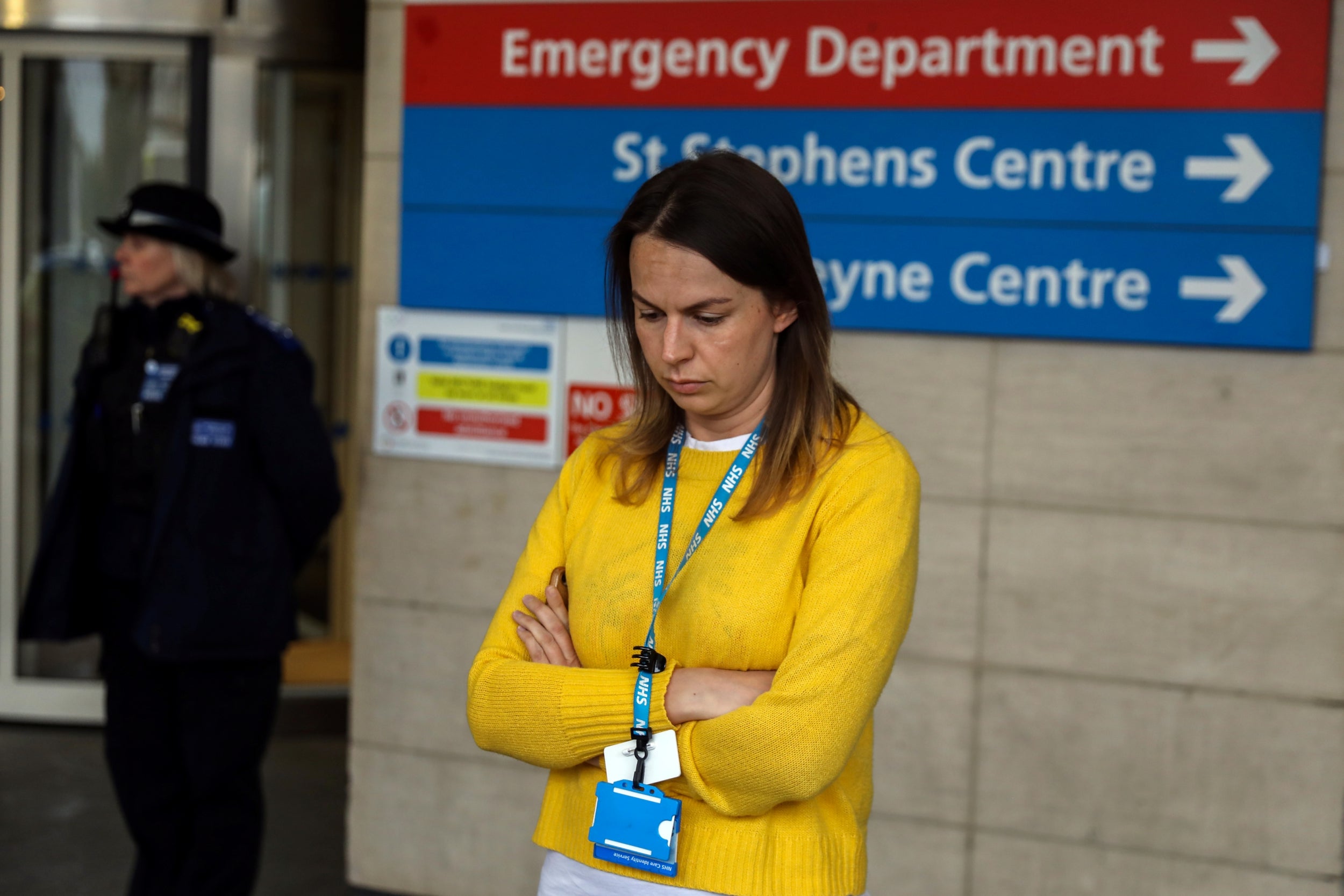
16/30 London
An NHS worker observes a minute’s silence at Chelsea and Westminster Hospital
Reuters
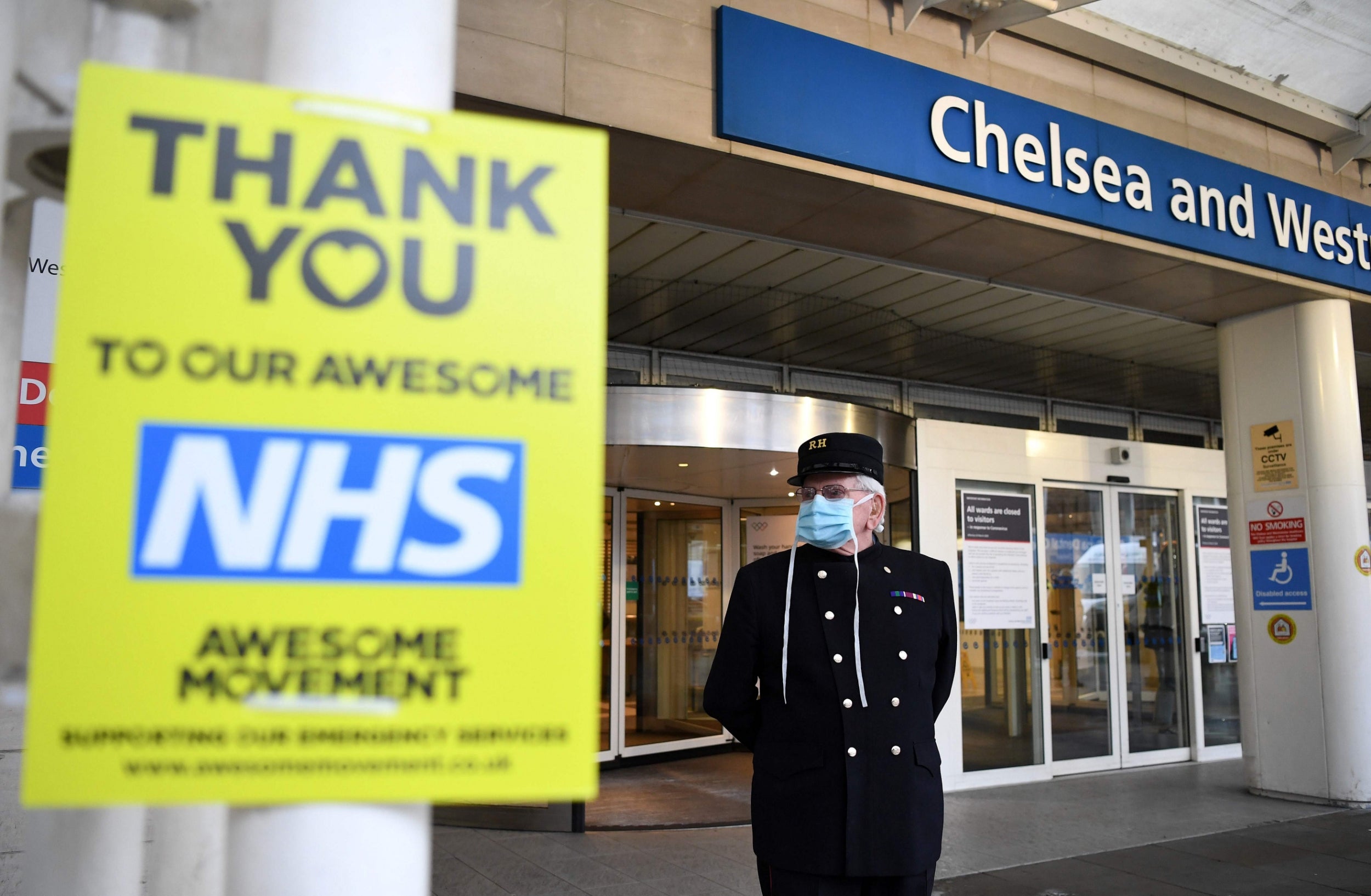
17/30 Chelsea and Westminster Hospital in London
AFP via Getty
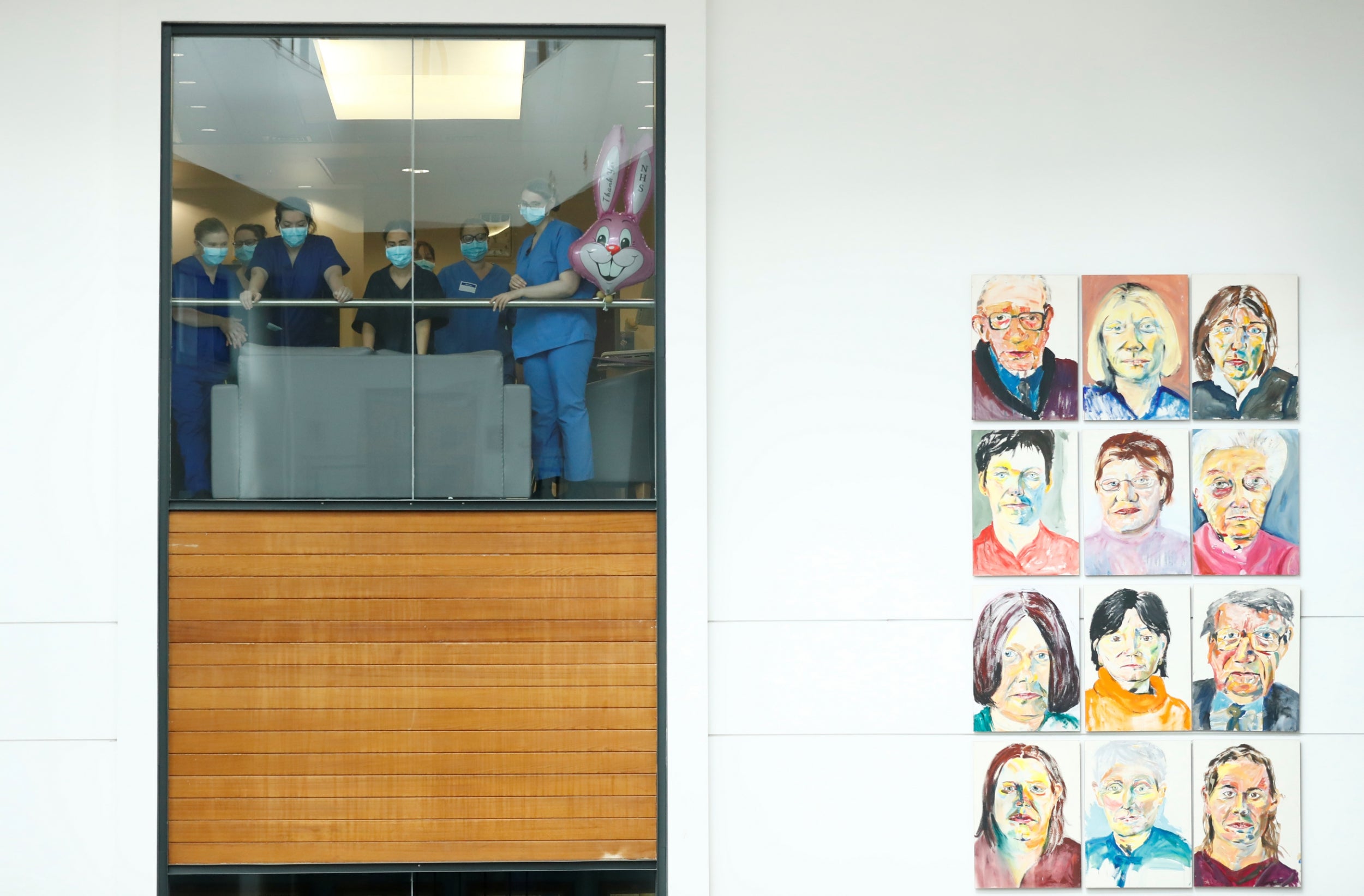
18/30 Belfast, Northern Ireland
NHS staff observe a minutes silence at Mater Infirmorum Hospital
Reuters
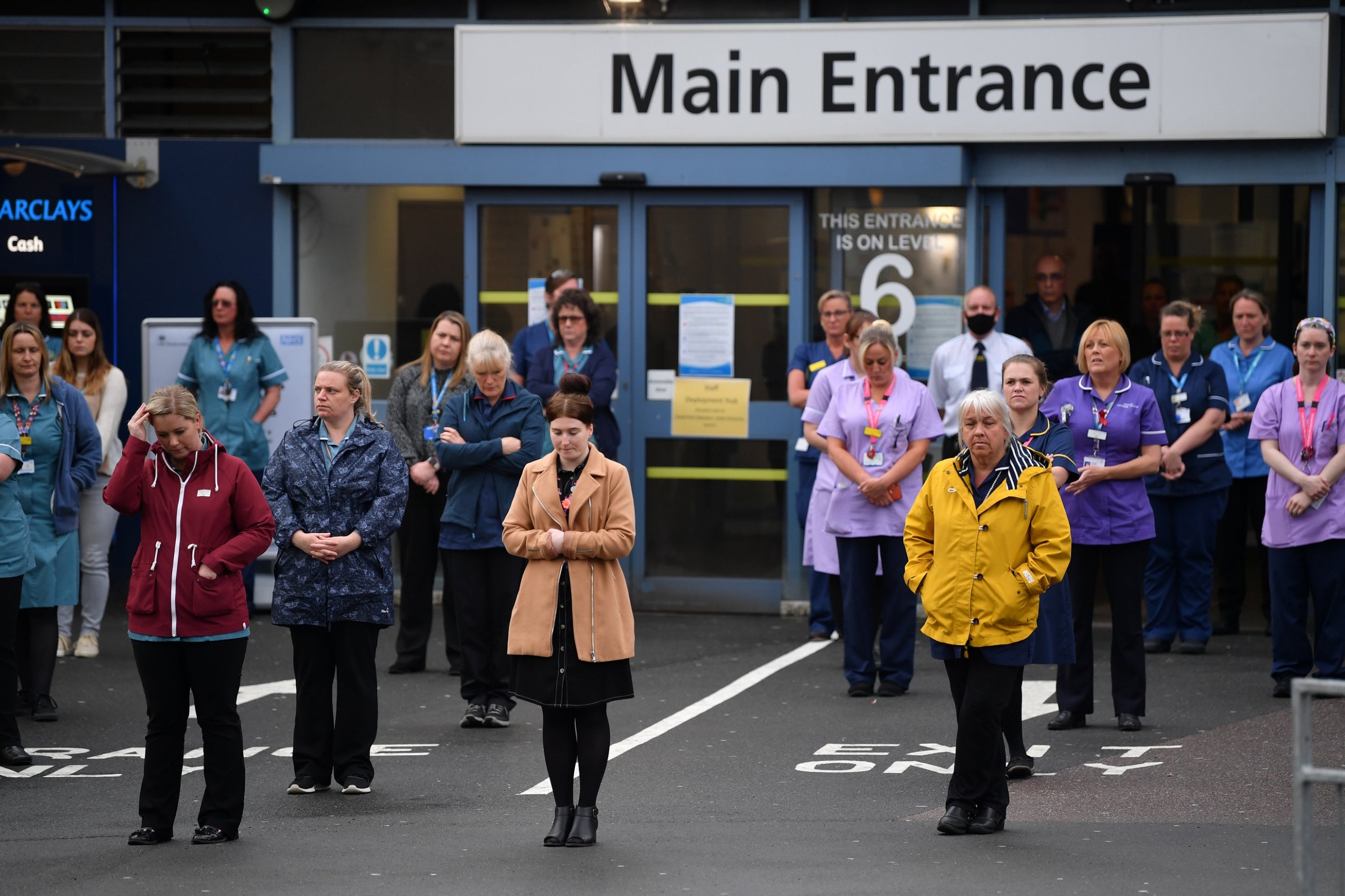
19/30 Plymouth
NHS workers hold a minute’s silence outside the main entrance of Derriford Hospital
Getty
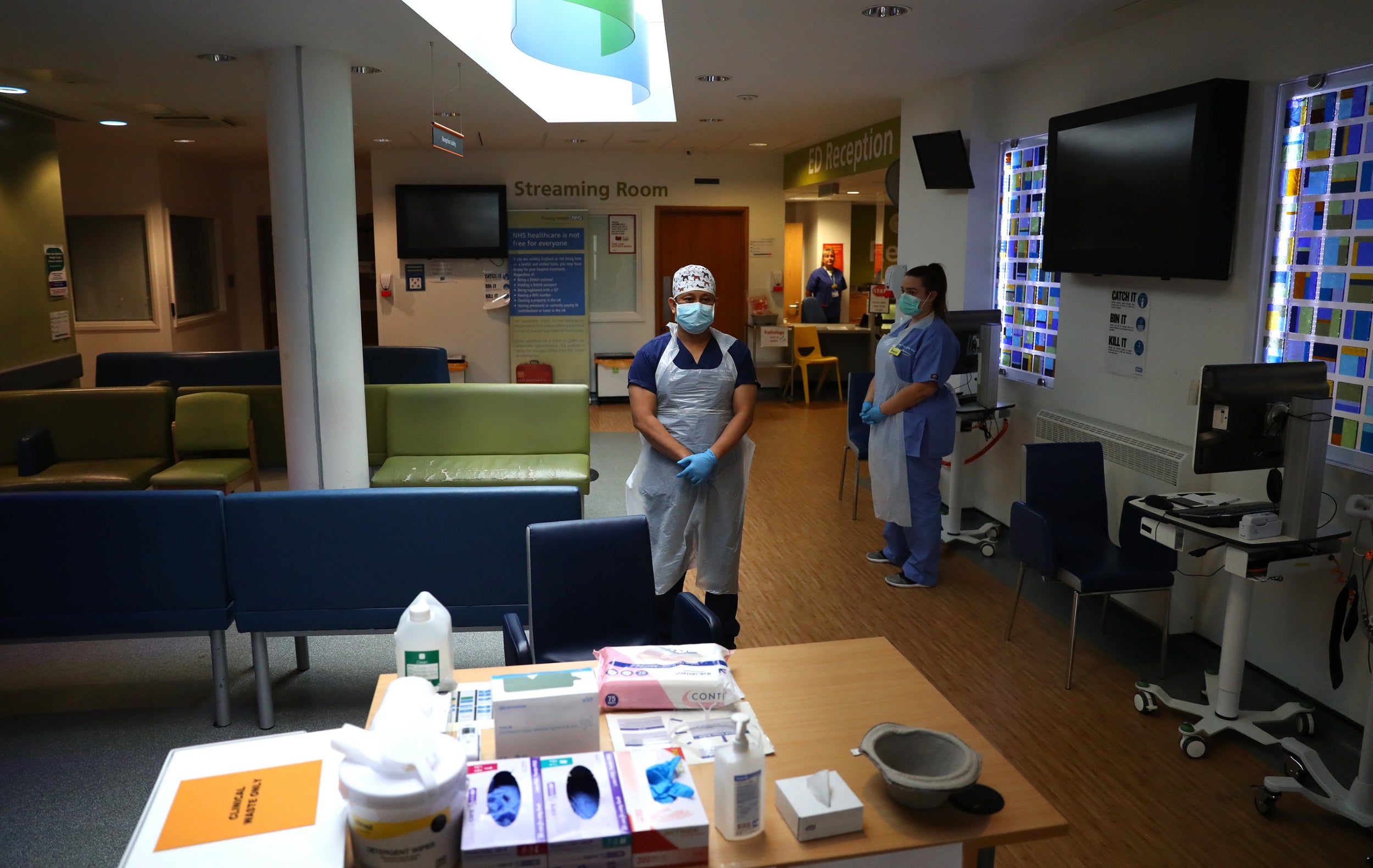
20/30
NHS Frimley Park Hospital staff at the A&E department observe a minute’s silence
Getty
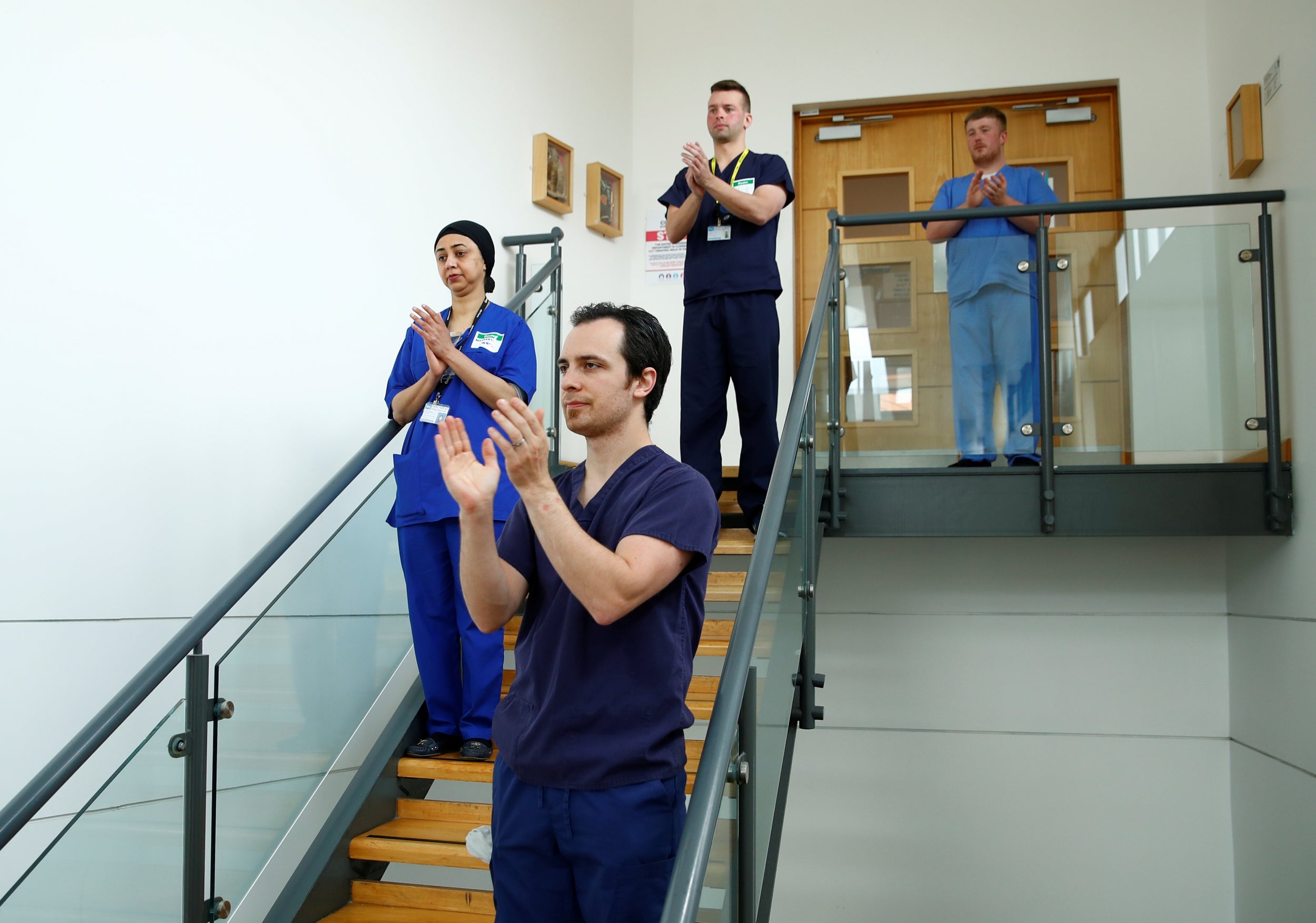
21/30 Mater Infirmorum Hospital
People applaud after a minutes silence in honour of key workers
Reuters
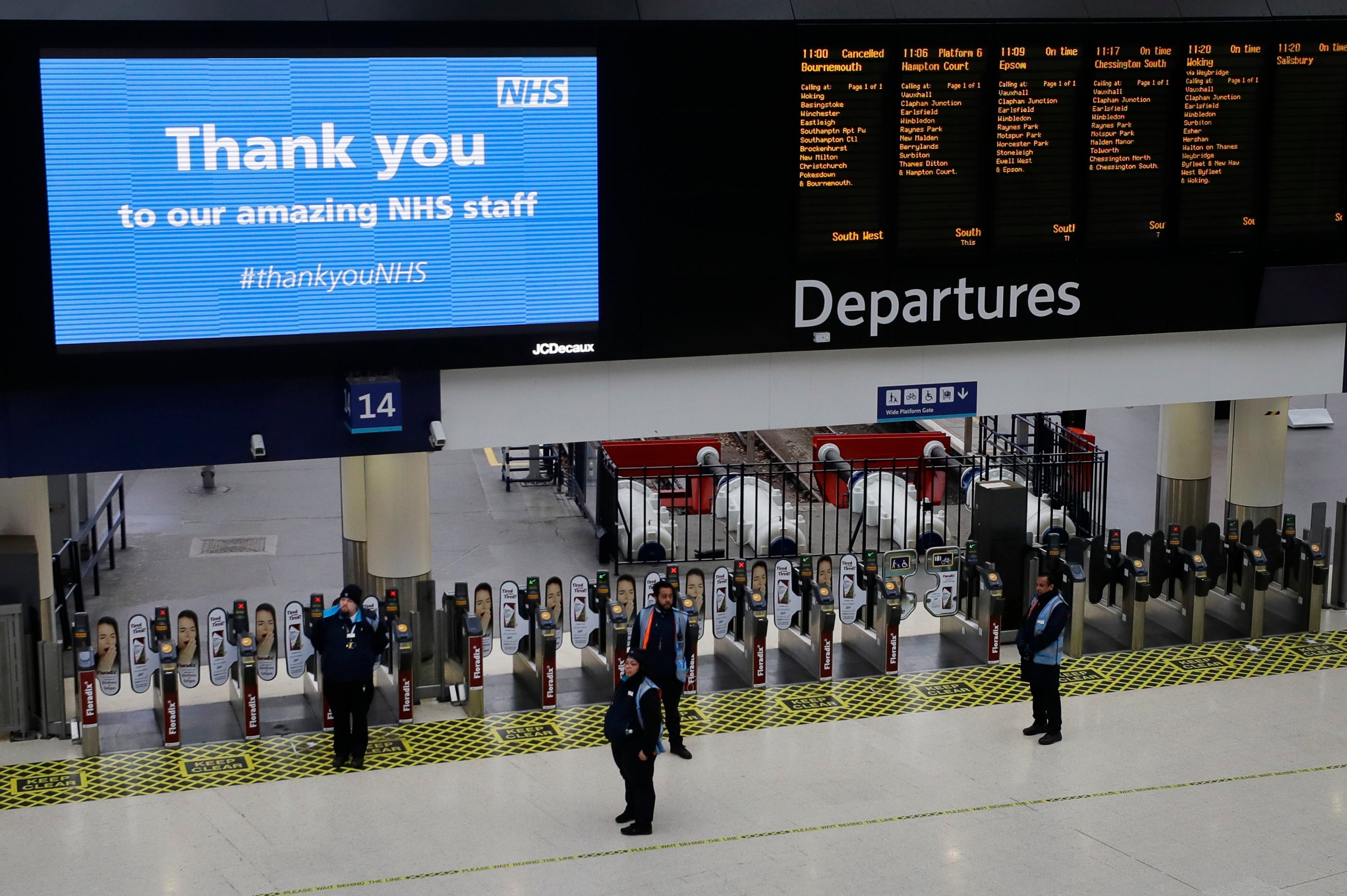
22/30 Waterloo Station, London
AP
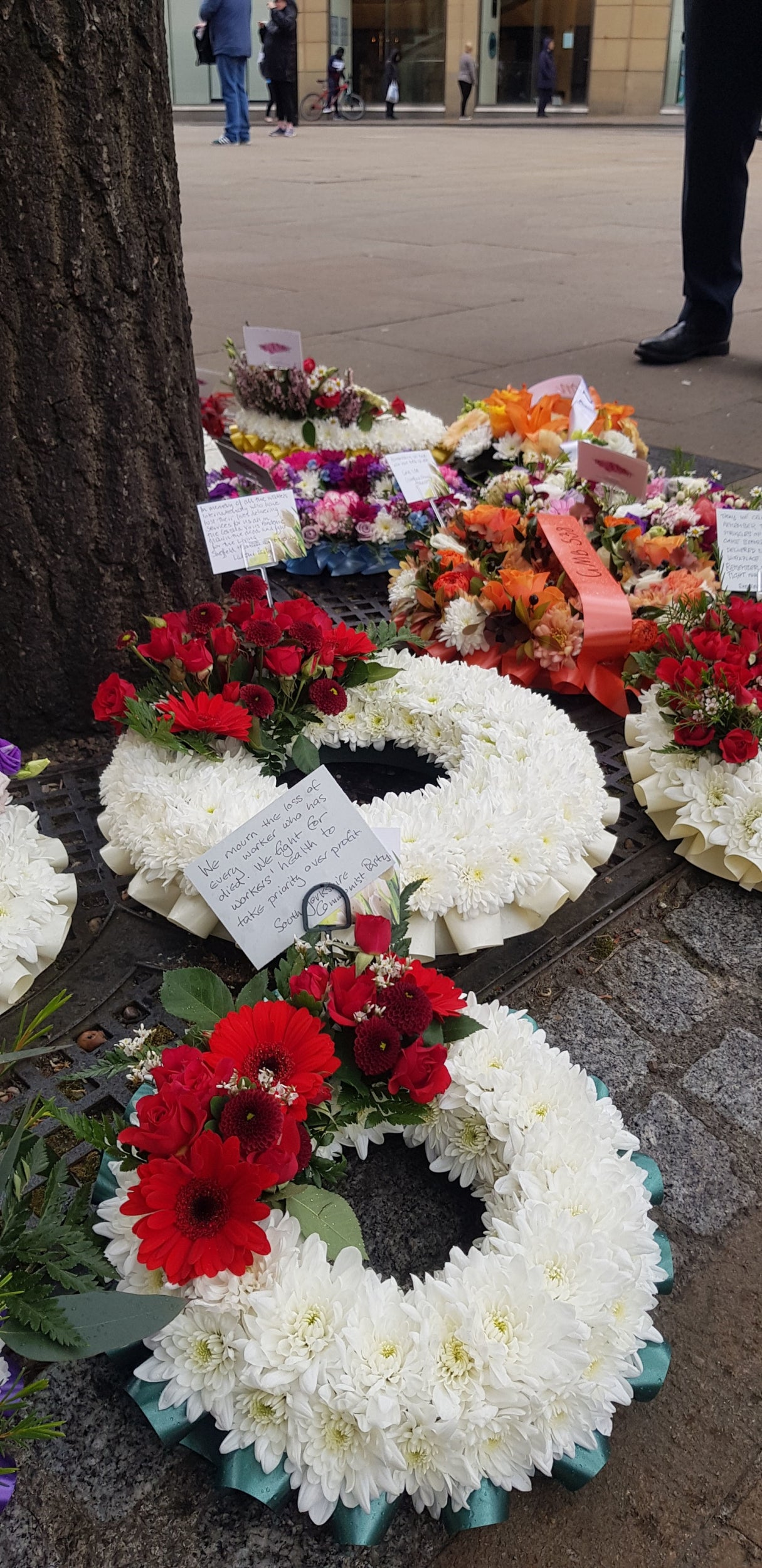
23/30
Wreaths laid outside Sheffield town hall
PA
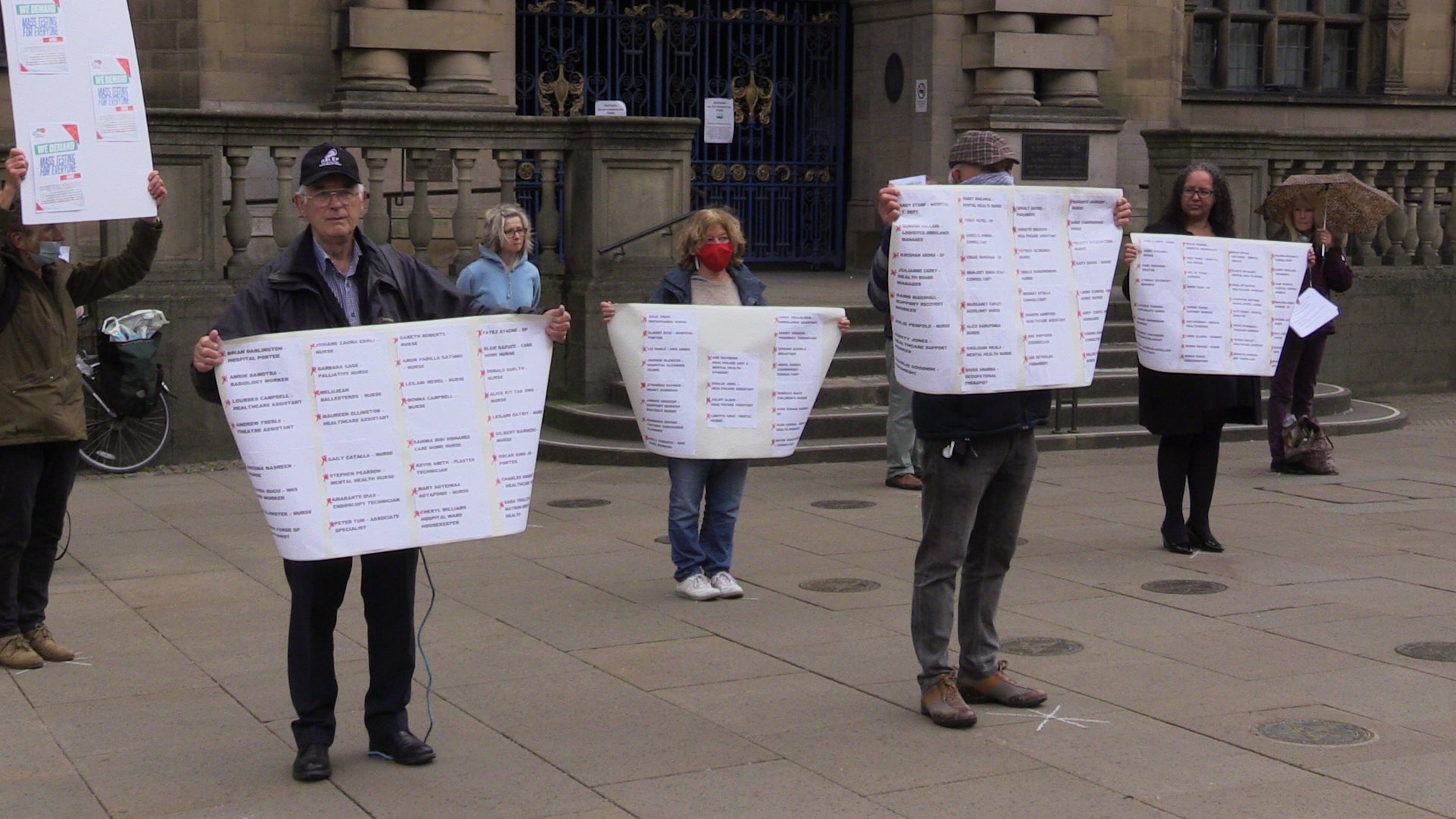
24/30
A group of trade unionists and supporters standing outside Sheffield town hall
PA
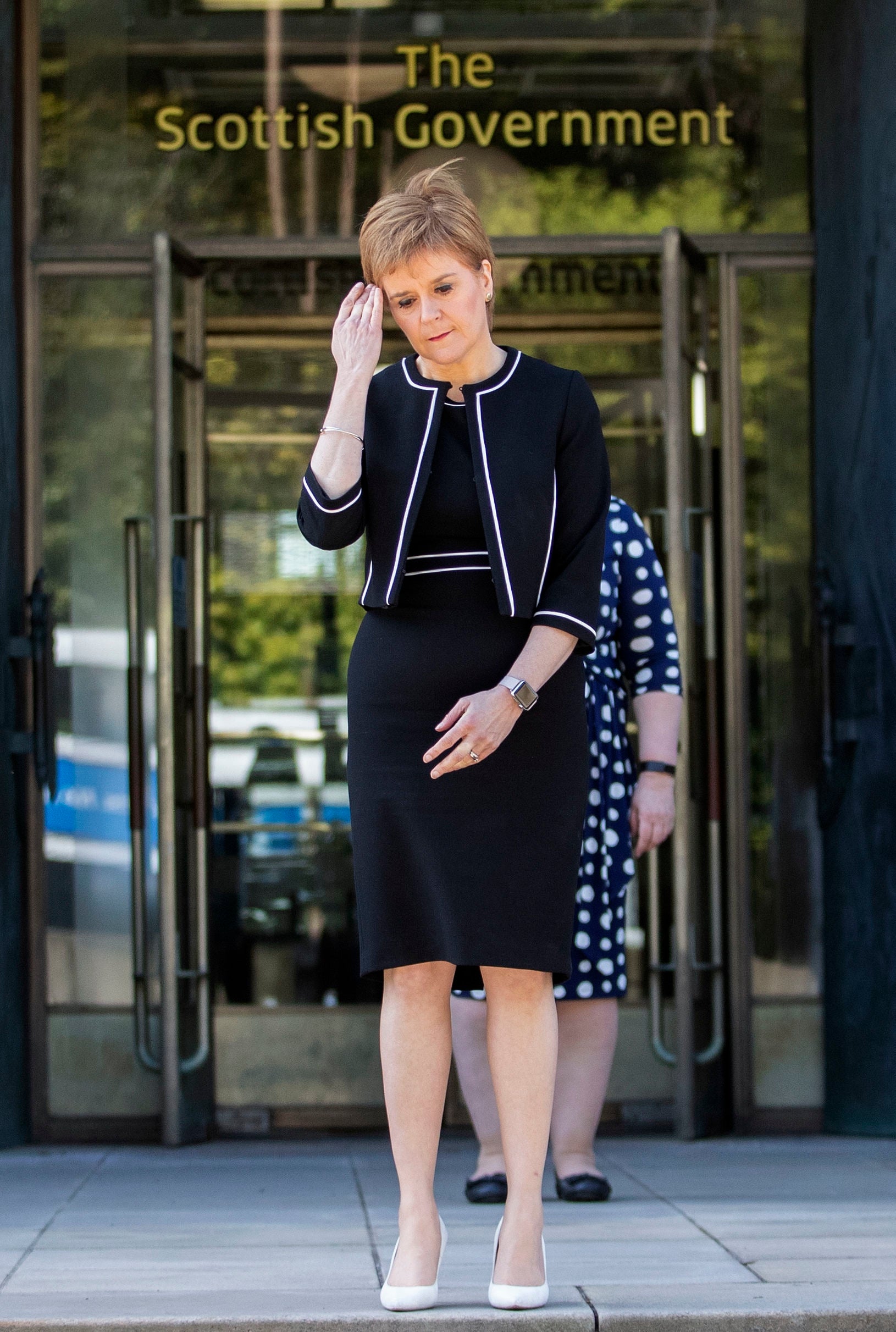
25/30
First Minister Nicola Sturgeon stands outside St Andrew’s House in Edinburgh to observe a minute’s silence in tribute to the NHS staff and key workers who have died during the coronavirus outbreak
PA
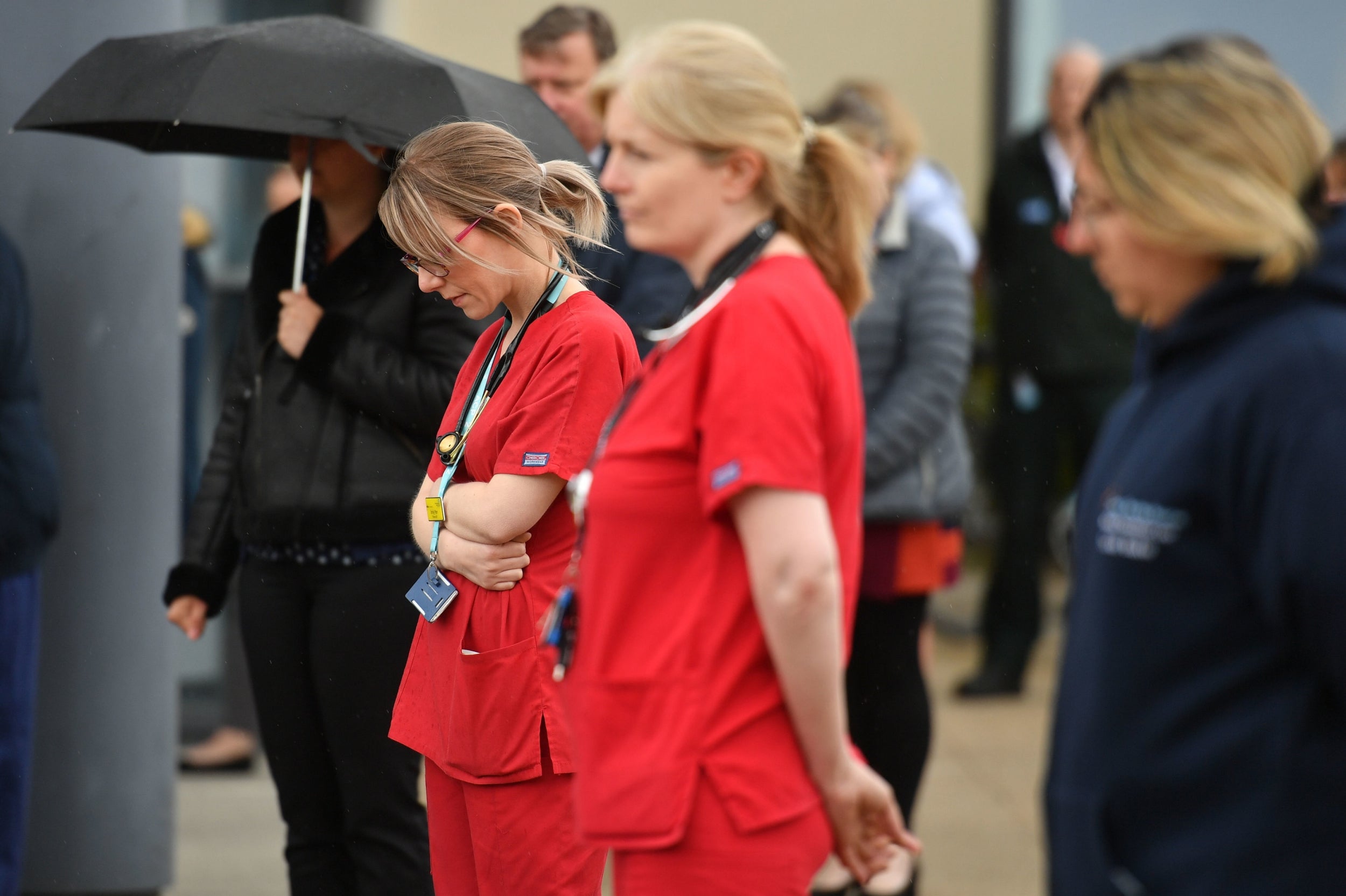
26/30
Staff stand outside the Royal Derby Hospital, during a minutes silence
PA
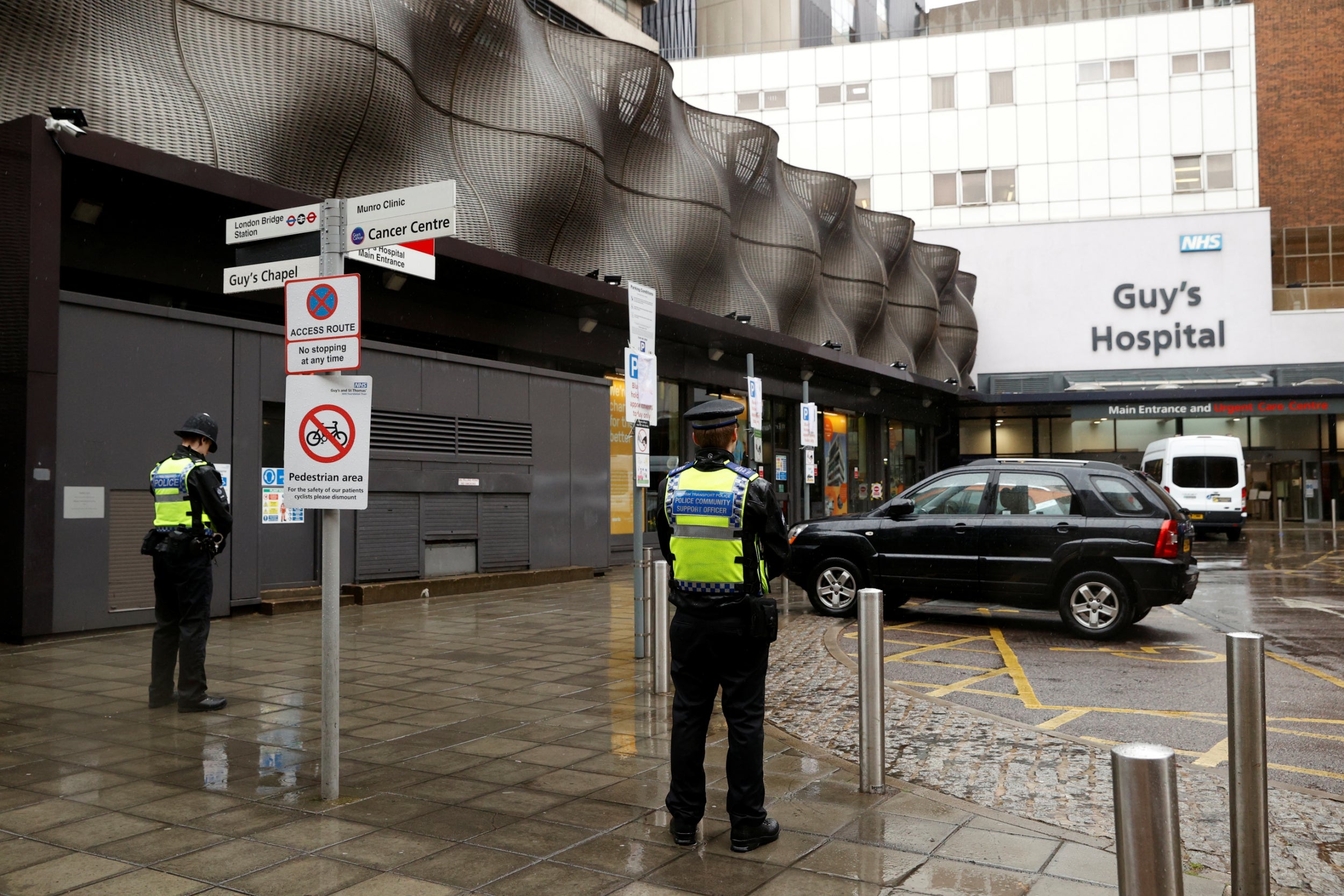
27/30 London
Police officers observe a minutes silence at Guy’s Hospital
Reuters
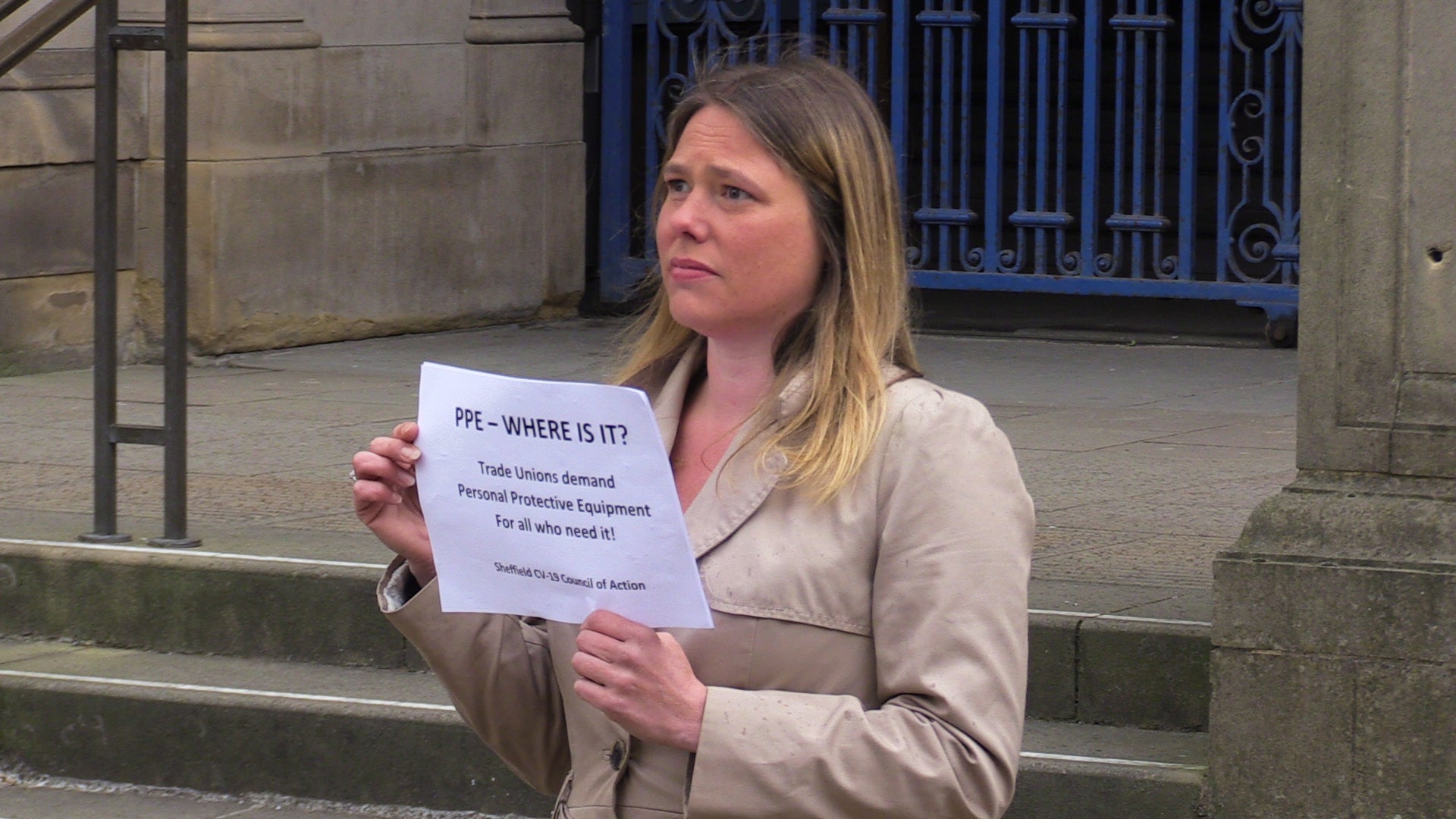
28/30
A woman standing outside Sheffield town hall
PA
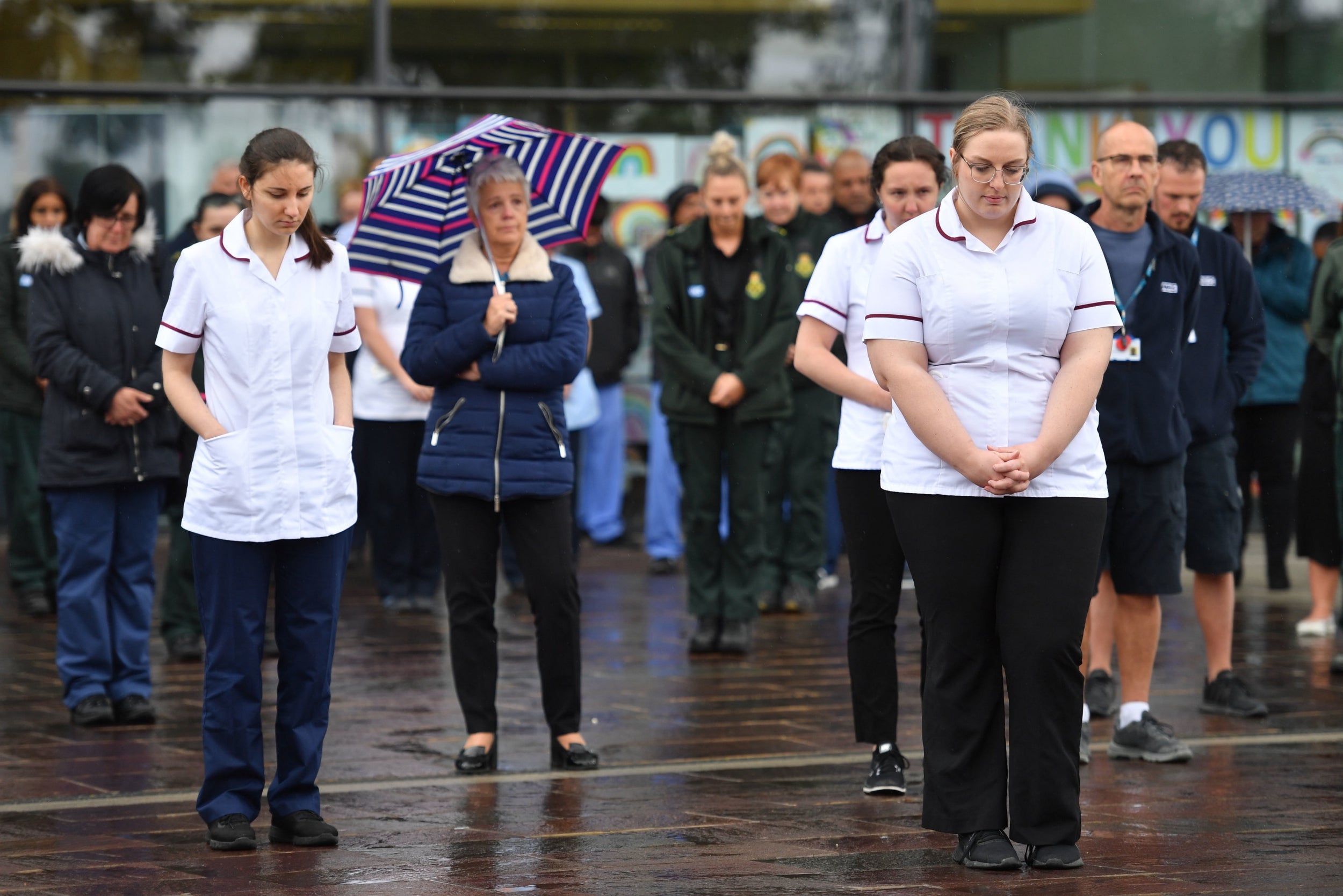
29/30 Royal Derby Hospital
PA
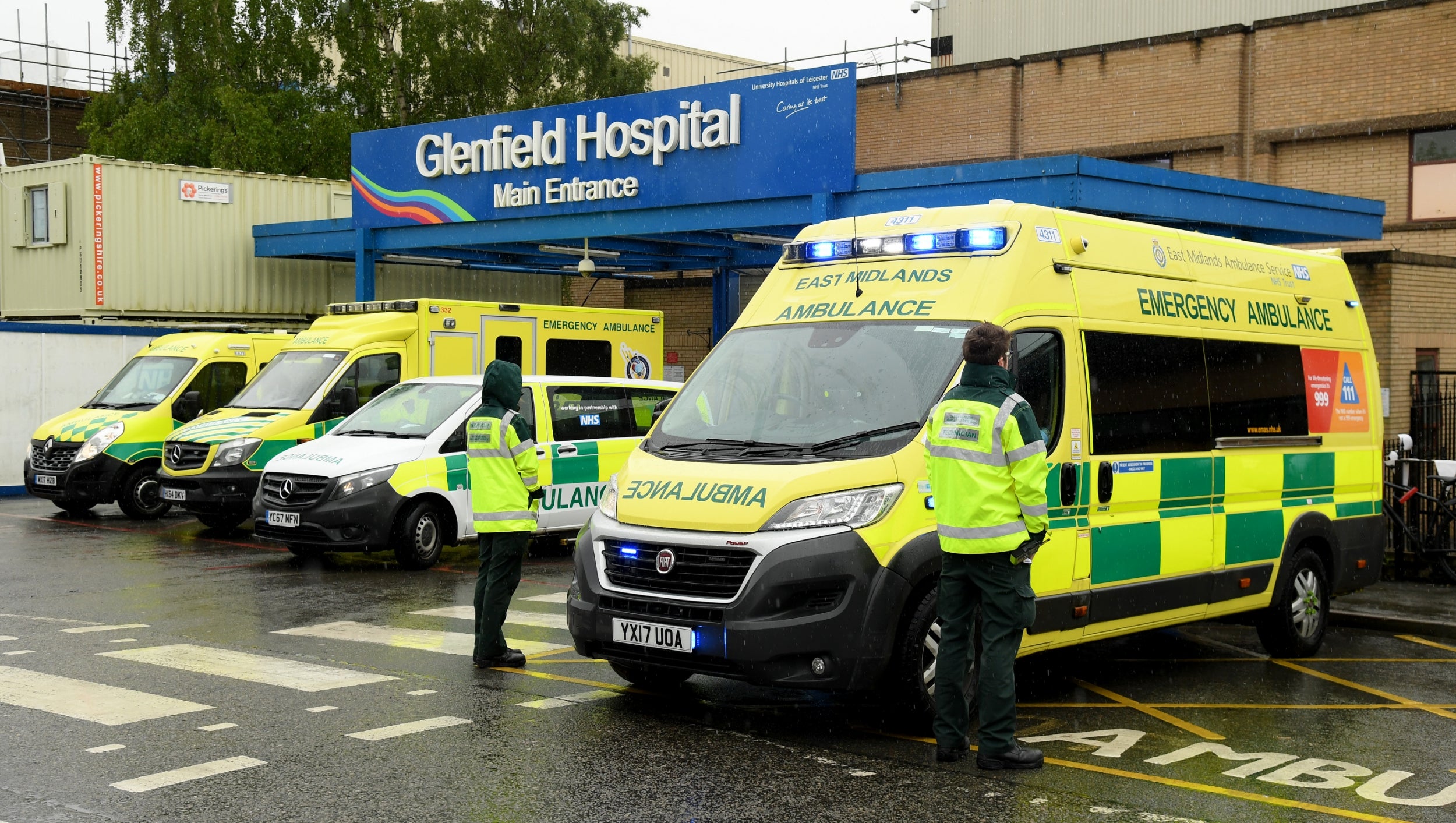
30/30 Leicester,
NHS workers during a minute’s silence outside Glenfield Hospital
Getty

1/30
Staff react outside Salford Royal Hospital in Manchester during a minute’s silence to pay tribute to the NHS staff and key workers who have died during the coronavirus outbreak
PA

2/30
Staff inside Camberwell bus depot in London, during a minute’s silence
PA

3/30
NHS staff at the Mater hospital in Belfast, during a minute’s silence to pay tribute to the NHS staff and key workers who have died during the coronavirus outbreak.
PA

4/30
Shoppers observe a minute’s silence in Tescos in Shoreham
Getty

5/30
Firefighters outside Godstone fire station
PA

6/30 Salford Royal Hospital
Getty

7/30 Salford Royal Hospital
PA

8/30
Hospital workers take part in a protest calling on the British government to provide PPE across Britain for all workers in care, the NHS and other vital public services after a nationwide minute’s silence at University College Hospital in London
AP

9/30
A school children’s poster hanging outside Glenfield Hospital during a minute’s silence
Getty

10/30
A man holds a placard that reads “People’s health before profit” outside St Thomas hospital
Getty

11/30
Staff members applaud outside the Royal Derby Hospital, following a minute’s silence
PA

12/30
Cabinet Secretary Mark Sedwill, Prime minister Boris Johnson and Chancellor of the Exchequer Rishi Sunak, stand inside 10 Downing Street, London, to observe a minutes silence in tribute to the NHS staff and key workers who have died during the coronavirus outbreak
PA

13/30 University College Hospital, London
Hospital workers hold placards with the names of their colleagues who have died from coronavirus as they take part in a protest calling on the British government to provide PPE
AP

14/30
Staff at Waterloo Station in London, stand to observe a minute’s silence, to pay tribute to NHS and key workers who have died with coronavirus
AP

15/30
Medical staff at the Louisa Jordan hospital stand during a UK wide minutes silence to commemorate the key workers who have died with coronavirus in Glasgow
Getty

16/30 London
An NHS worker observes a minute’s silence at Chelsea and Westminster Hospital
Reuters

17/30 Chelsea and Westminster Hospital in London
AFP via Getty

18/30 Belfast, Northern Ireland
NHS staff observe a minutes silence at Mater Infirmorum Hospital
Reuters

19/30 Plymouth
NHS workers hold a minute’s silence outside the main entrance of Derriford Hospital
Getty

20/30
NHS Frimley Park Hospital staff at the A&E department observe a minute’s silence
Getty

21/30 Mater Infirmorum Hospital
People applaud after a minutes silence in honour of key workers
Reuters

22/30 Waterloo Station, London
AP

23/30
Wreaths laid outside Sheffield town hall
PA

24/30
A group of trade unionists and supporters standing outside Sheffield town hall
PA

25/30
First Minister Nicola Sturgeon stands outside St Andrew’s House in Edinburgh to observe a minute’s silence in tribute to the NHS staff and key workers who have died during the coronavirus outbreak
PA

26/30
Staff stand outside the Royal Derby Hospital, during a minutes silence
PA

27/30 London
Police officers observe a minutes silence at Guy’s Hospital
Reuters

28/30
A woman standing outside Sheffield town hall
PA

29/30 Royal Derby Hospital
PA

30/30 Leicester,
NHS workers during a minute’s silence outside Glenfield Hospital
Getty
It is expected that Sage will publish the evidence on which it bases its recommendations to ministers by the end of the week.
Ministers are expected to decide shortly on advice from Sage that scarves and home-made face coverings could help reduce the spread of coronavirus in workplaces and public transport.
But it is not thought that ministers will be asked to approve any easing of the lockdown at Thursday’s meeting.
The 360 Covid-19 deaths in British hospitals reported on Monday were the lowest since 30 March, with figures showing a 16 per cent decrease in coronavirus patients in UK hospitals compared to the previous week.
But chief medical officer Chris Whitty warned there was “a very long way” to go before the virus was beaten.
Asked about speculation that Mr Johnson might this week announce measures such as the reopening of non-essential shops or workplaces where two-metre distancing can be maintained, the PM’s spokesman said: “We have set out that we will review social distancing measures by 7 May and the government is focused on that date.
The latest news on Brexit, politics and beyond direct to your inbox

“We are not at the point of wanting to change the social distancing measures which we have in place. In order to do that, we will have to have met the five tests.”
The spokesman said that ministers “aren’t prepared to risk a second peak that would be bad for public health and bad for the economy”.
Any increase in the rate of reprodution of the infection above 1 – meaning each infected person infects one other person – would mean a return to “exponential” growth of coronavirus in the community, he warned. Currently, the rate, known as R, is believed to be between 0.5 and 1, setting the scene for the outbreak being reduced and eventually brought under control.
On his second day back at work after recovering from coronavirus, Mr Johnson chaired the daily “war cabinet” at 10 Downing Street before taking part with chancellor Rishi Sunak in the one-minute silence for workers killed by Covid-19.
The PM’s spokesman said Mr Johnson was feeling “fine” and was “getting on with the coronavirus response” but was unable to say whether he would be taking part in the regular weekly session of prime minister’s questions in the House of Commons on Wednesday. First secretary of state Dominic Raab stood in for the PM last week while he continued his recuperation at Chequers.
The government is facing a deadline on Thursday for meeting health secretary Matt Hancock’s target of 100,000 daily tests, though delays in delivering results may mean it is not clear until early next week whether the milestone has been reached.
Within an hour of 10,000 home testing kits being made available this morning, some 7,000 were snapped up, while 22,000 of the 26,000 slots available at drive-through testing centres were booked.
Downing Street believes the testing programme has contributed to a fall in absences among NHS England frontline staff since 4 April, which has seen the proportion of doctors away from work drop from 7.3 per cent to 3.6 per cent and nurses from 9.5 per cent to 6.6 per cent.



